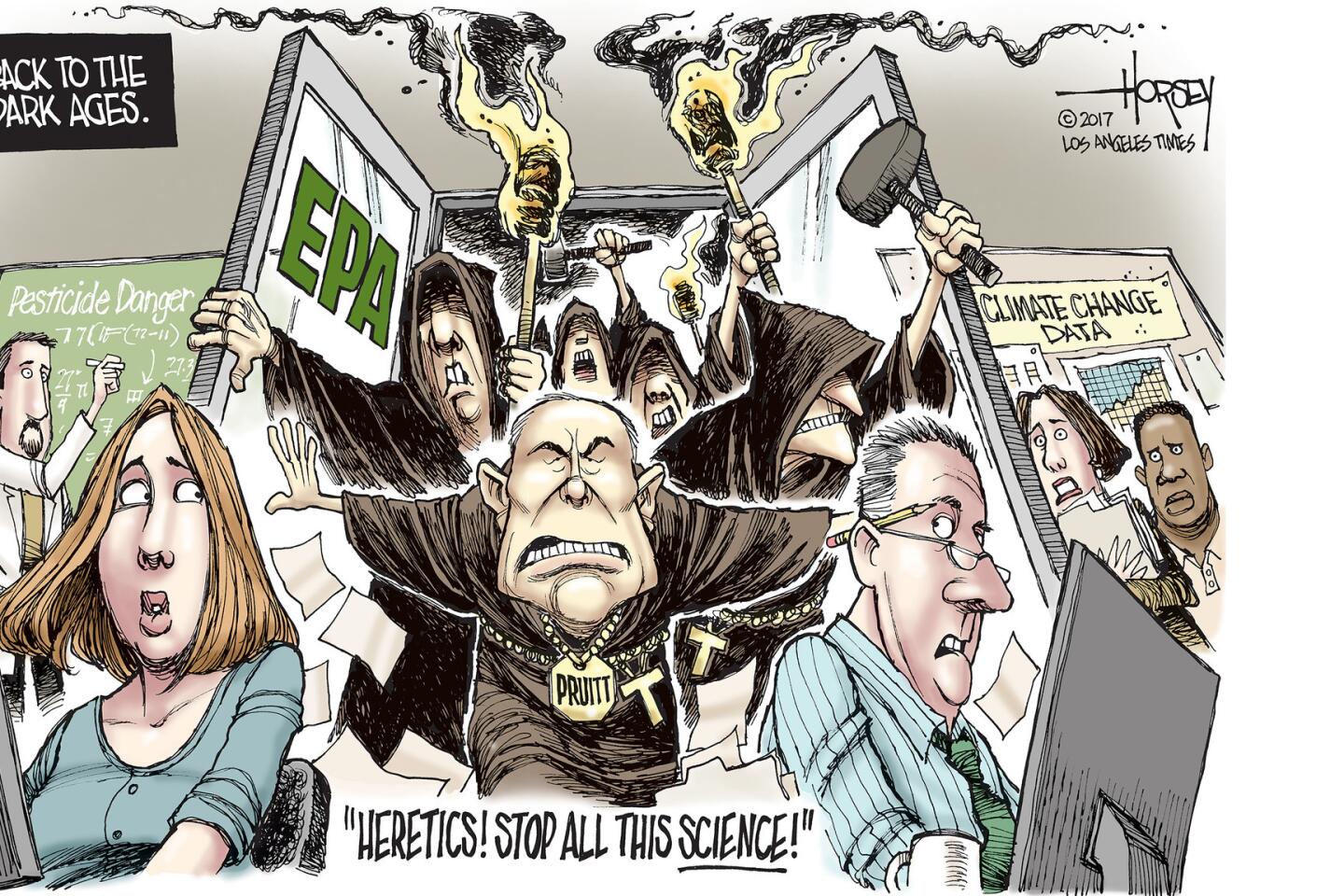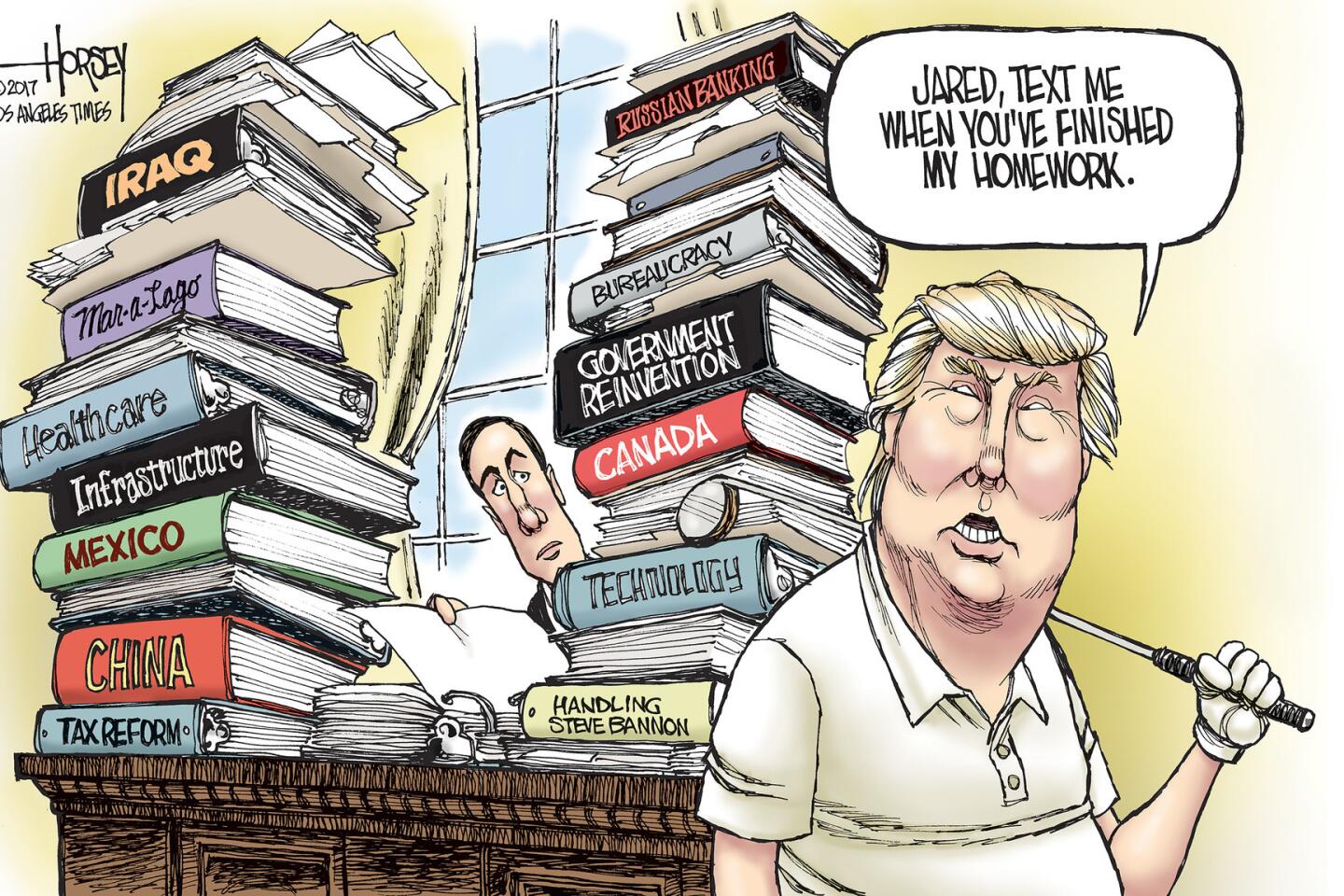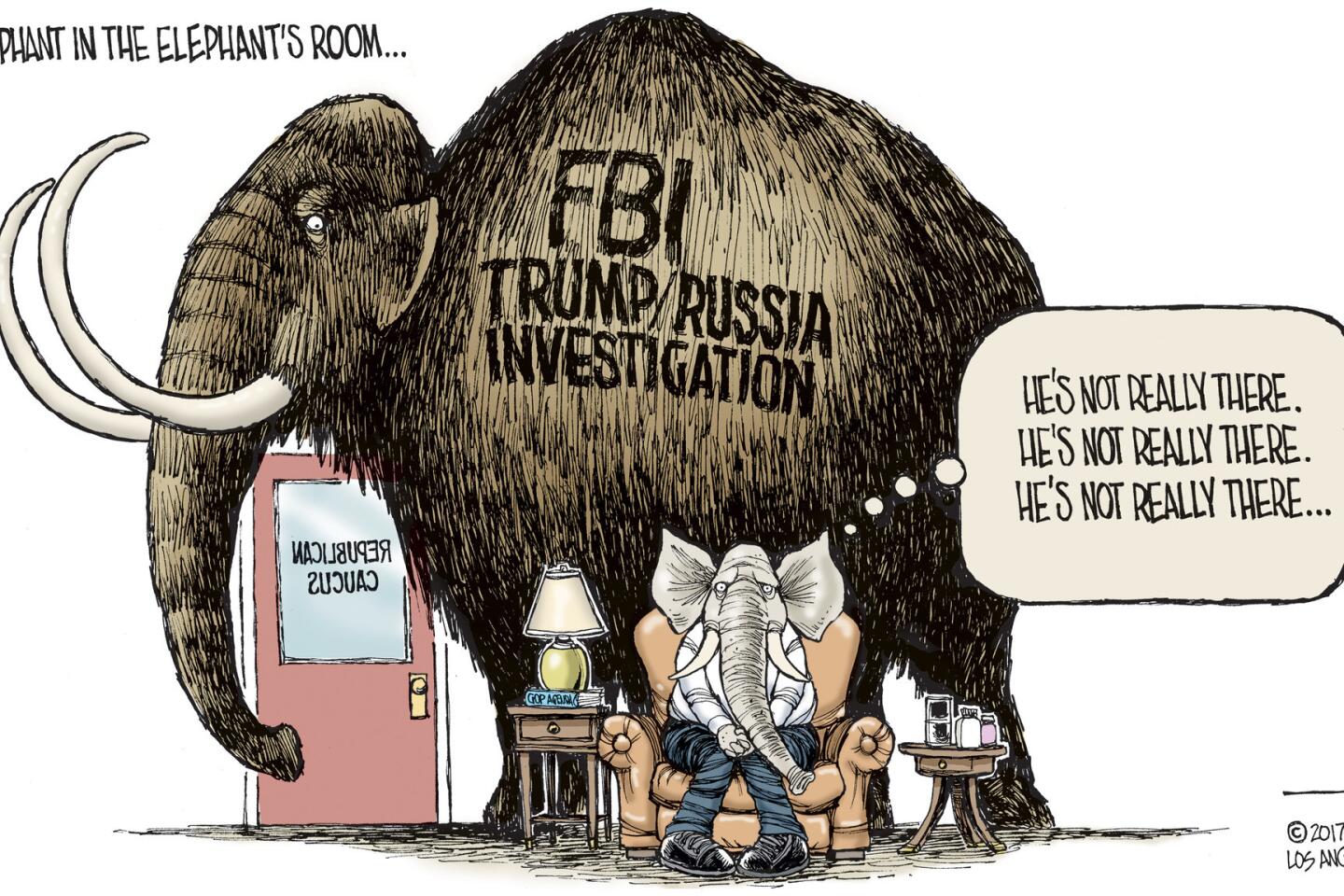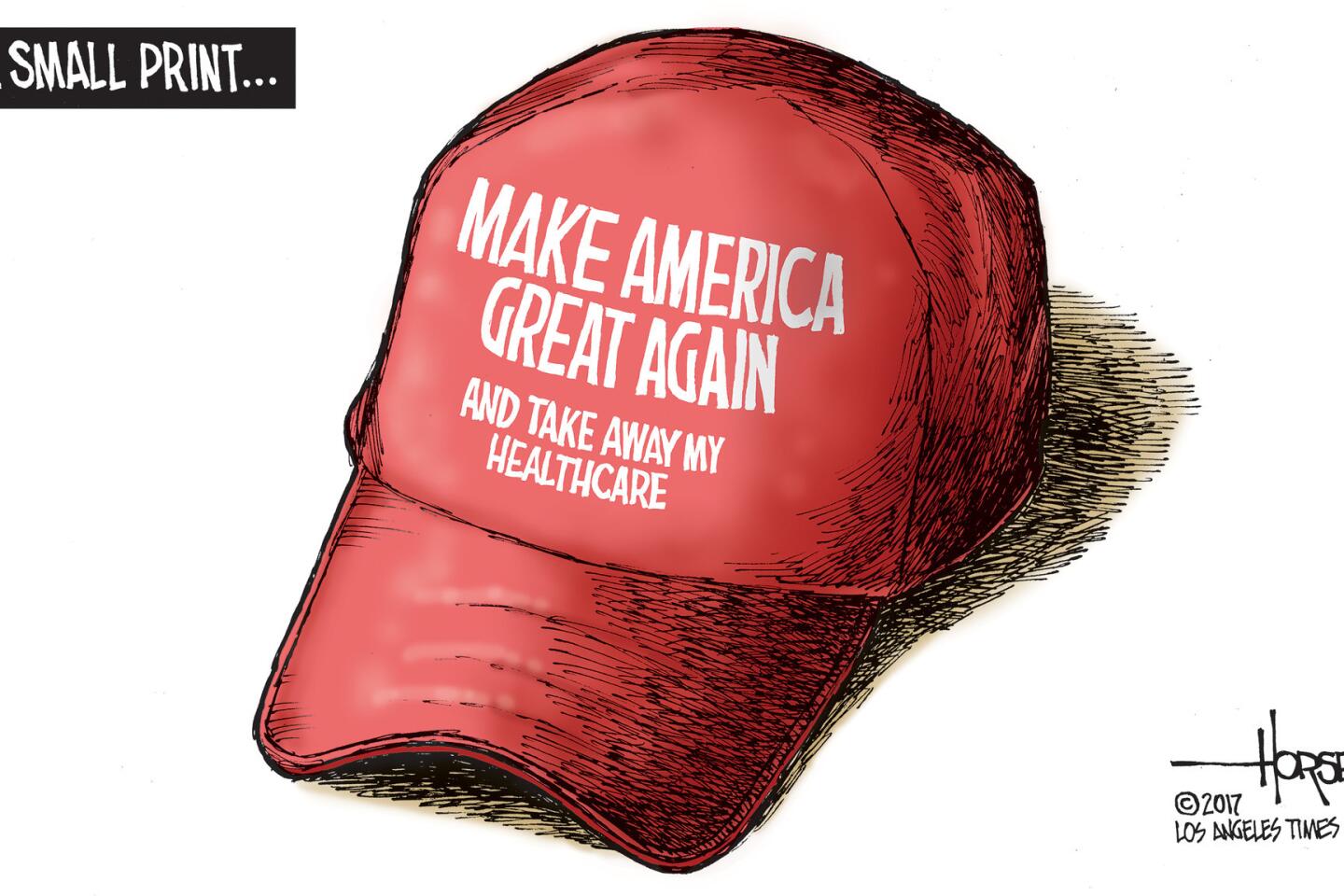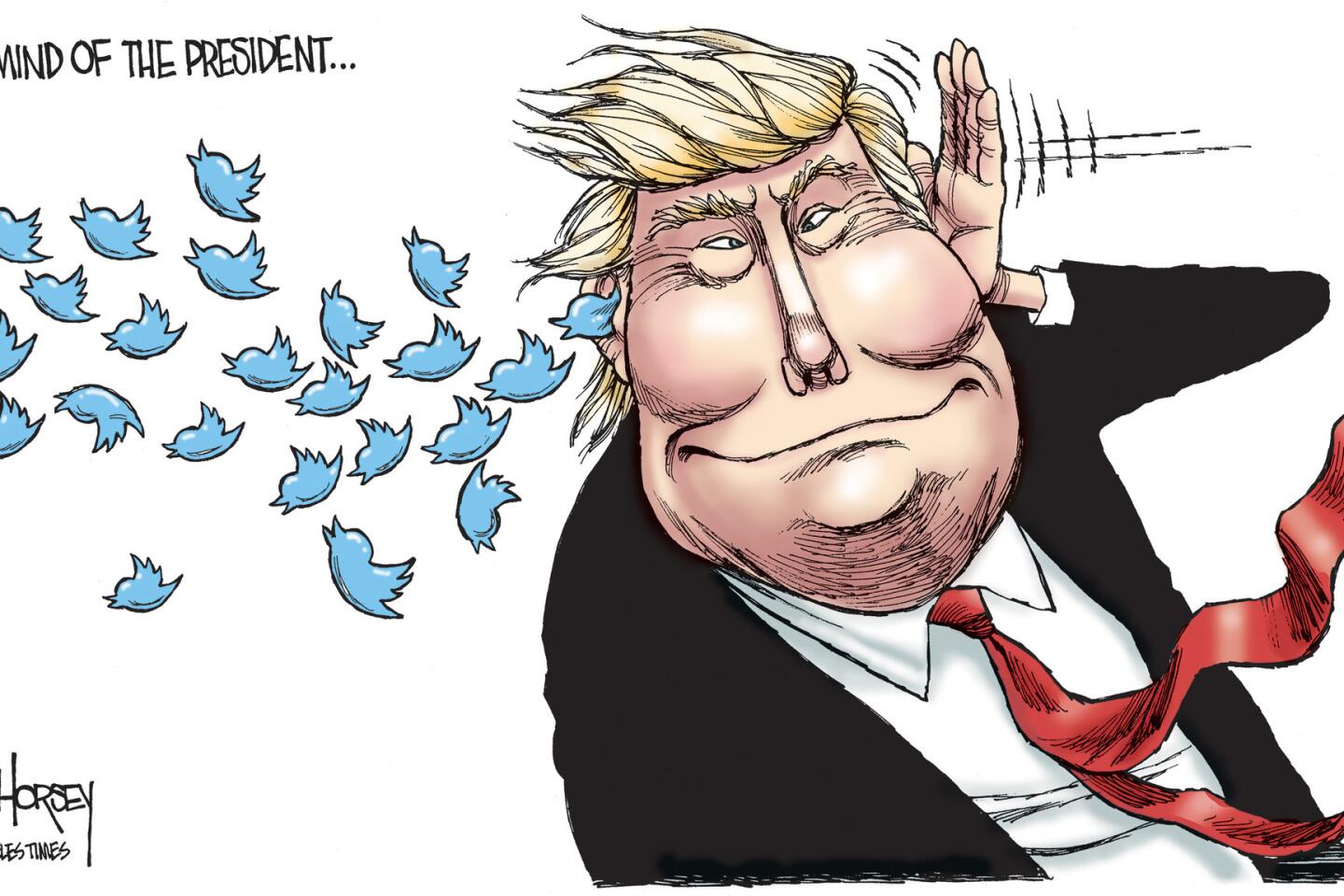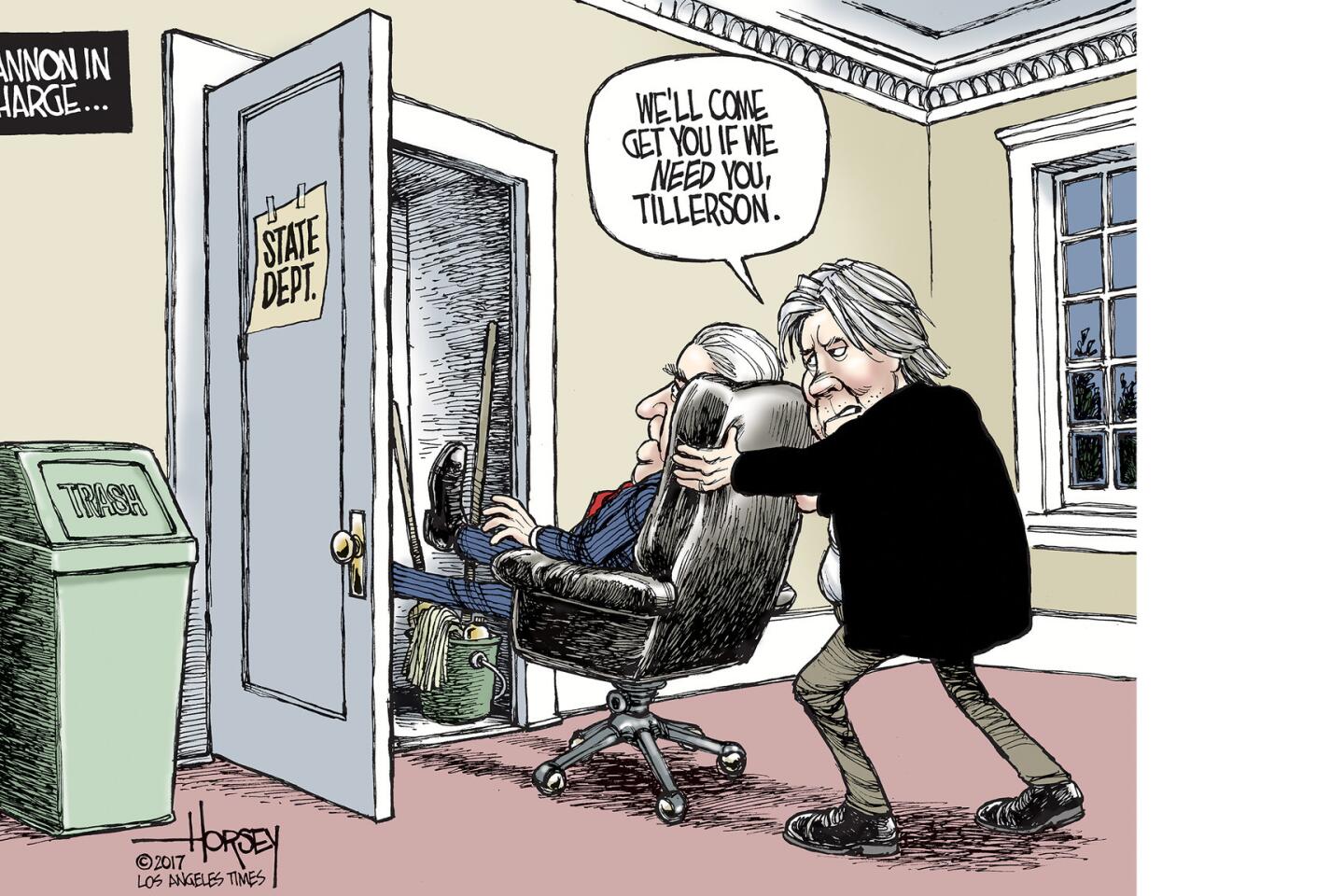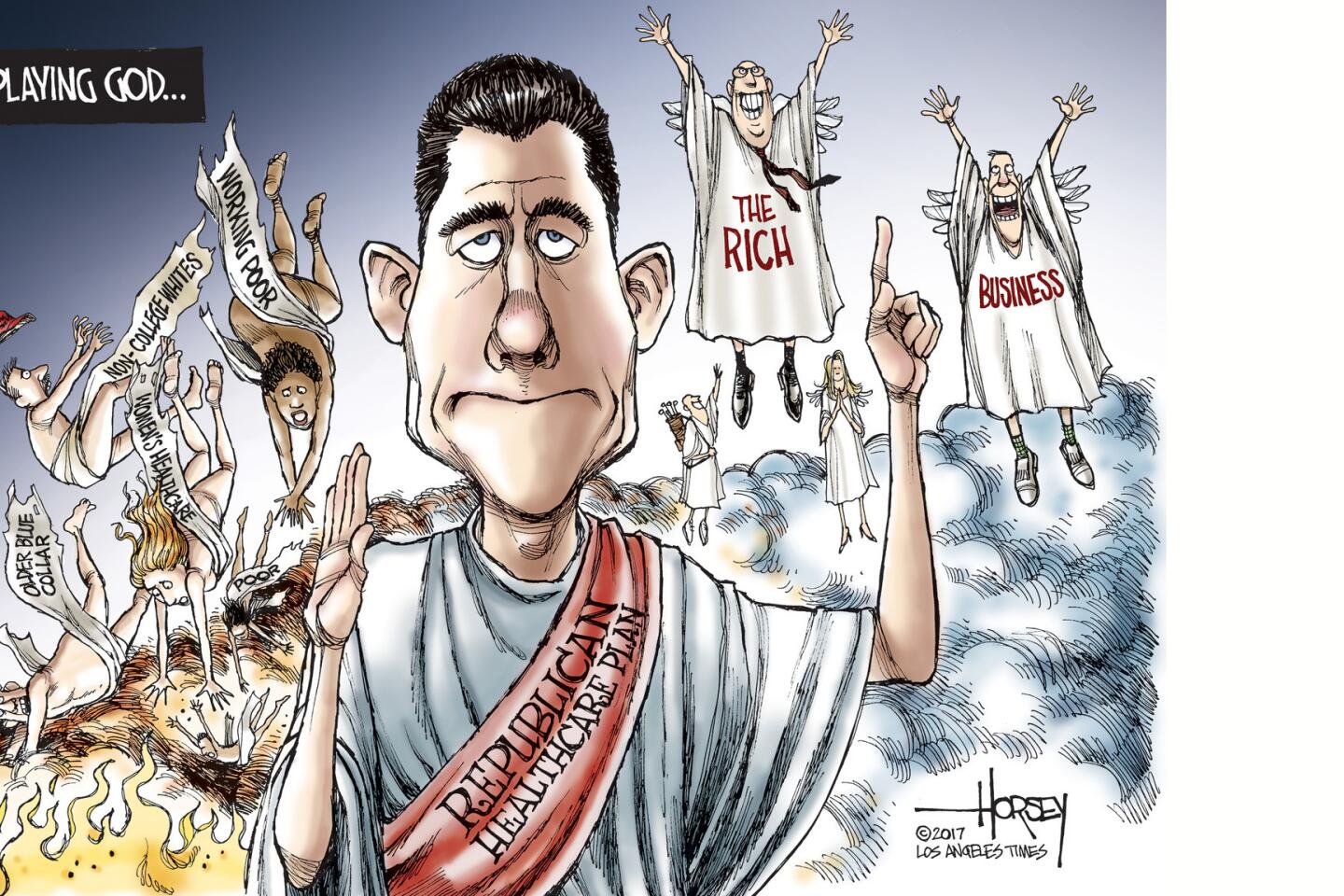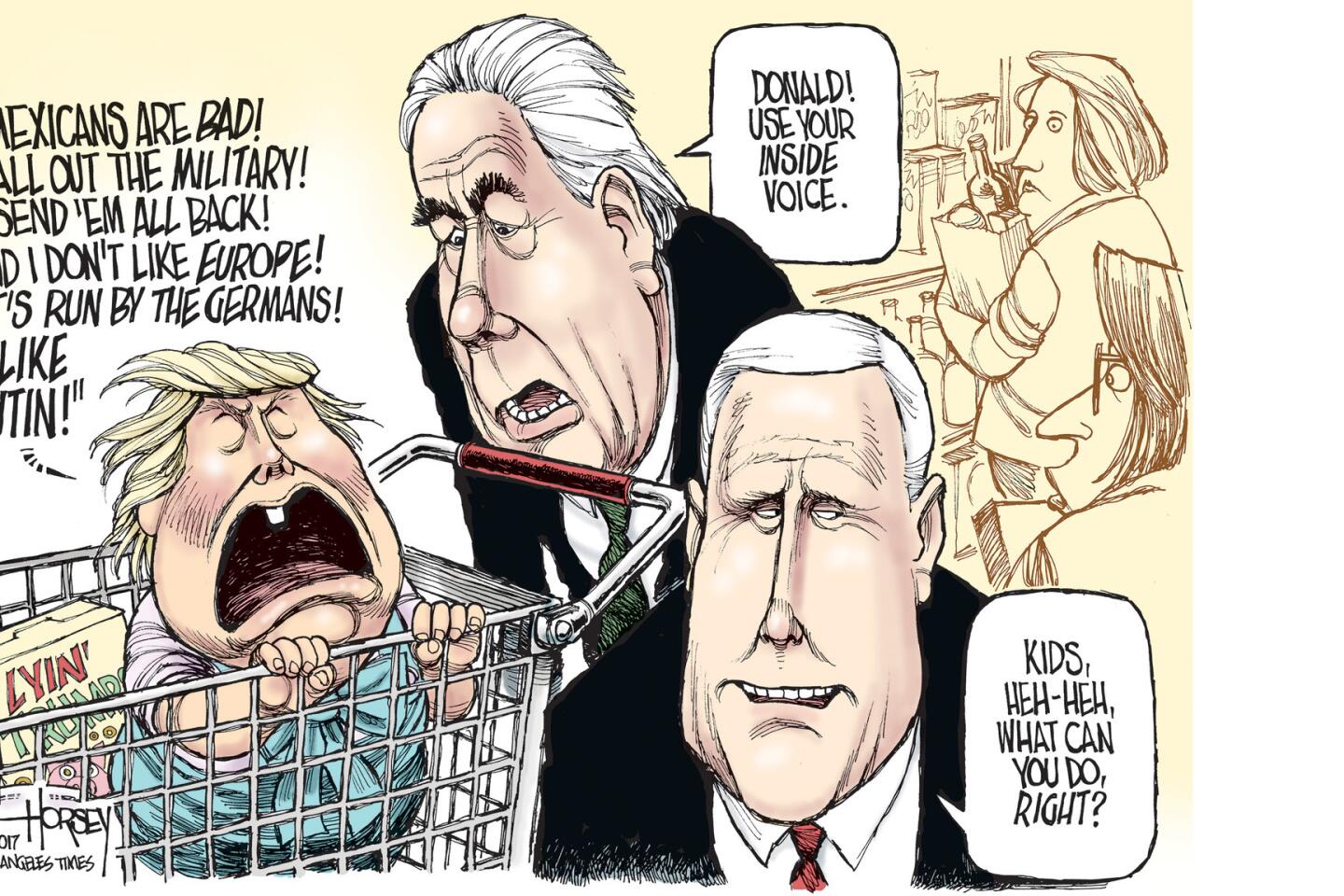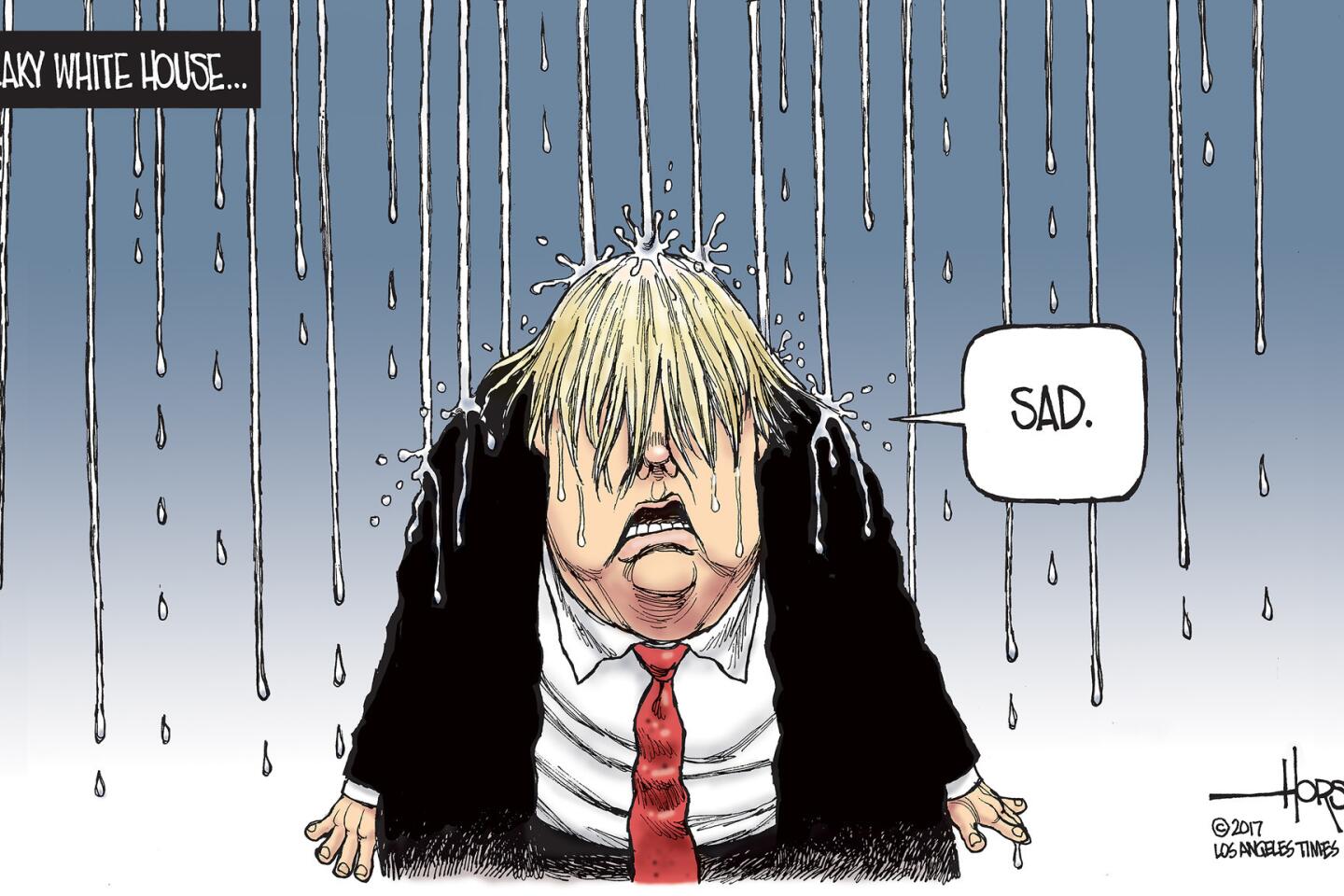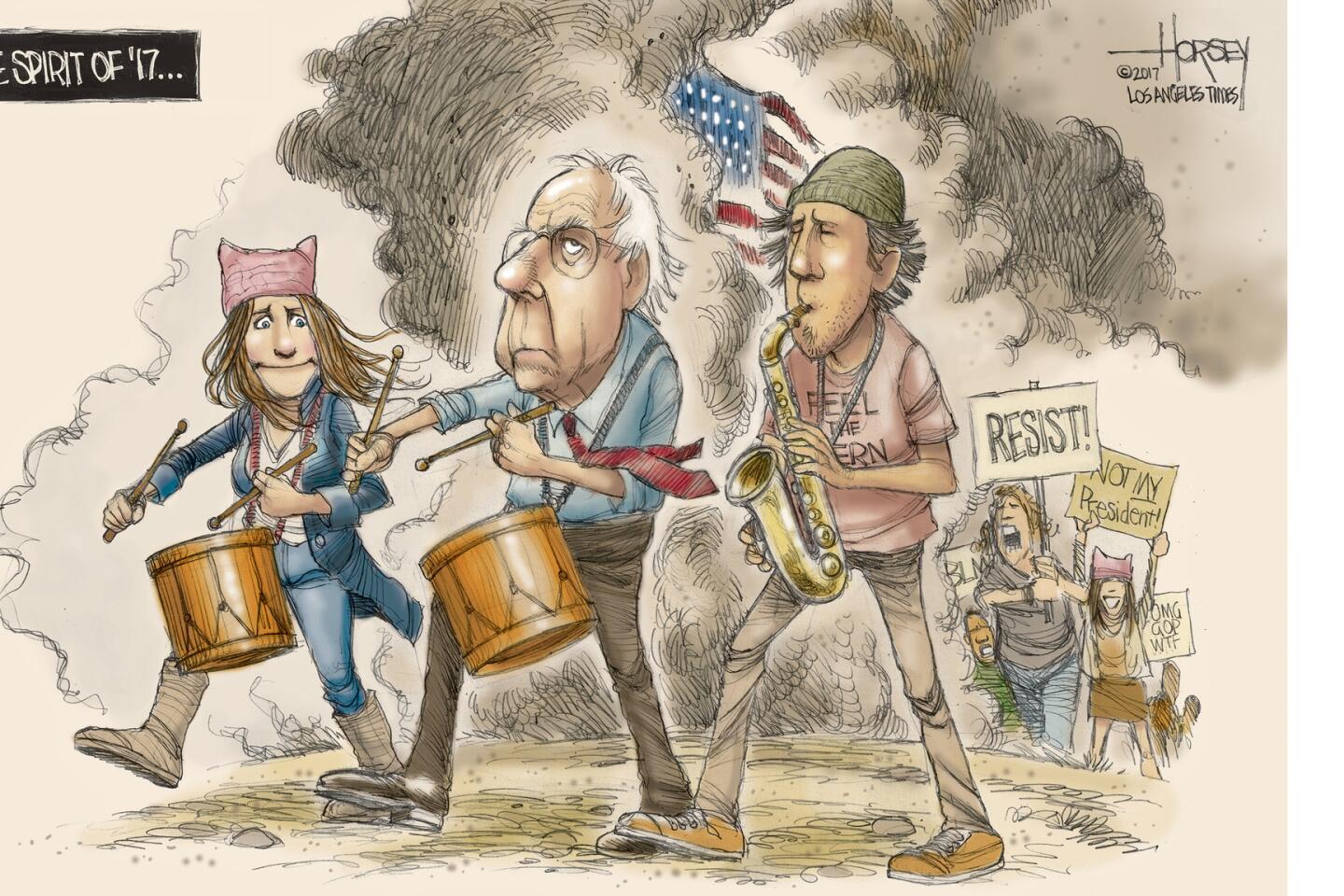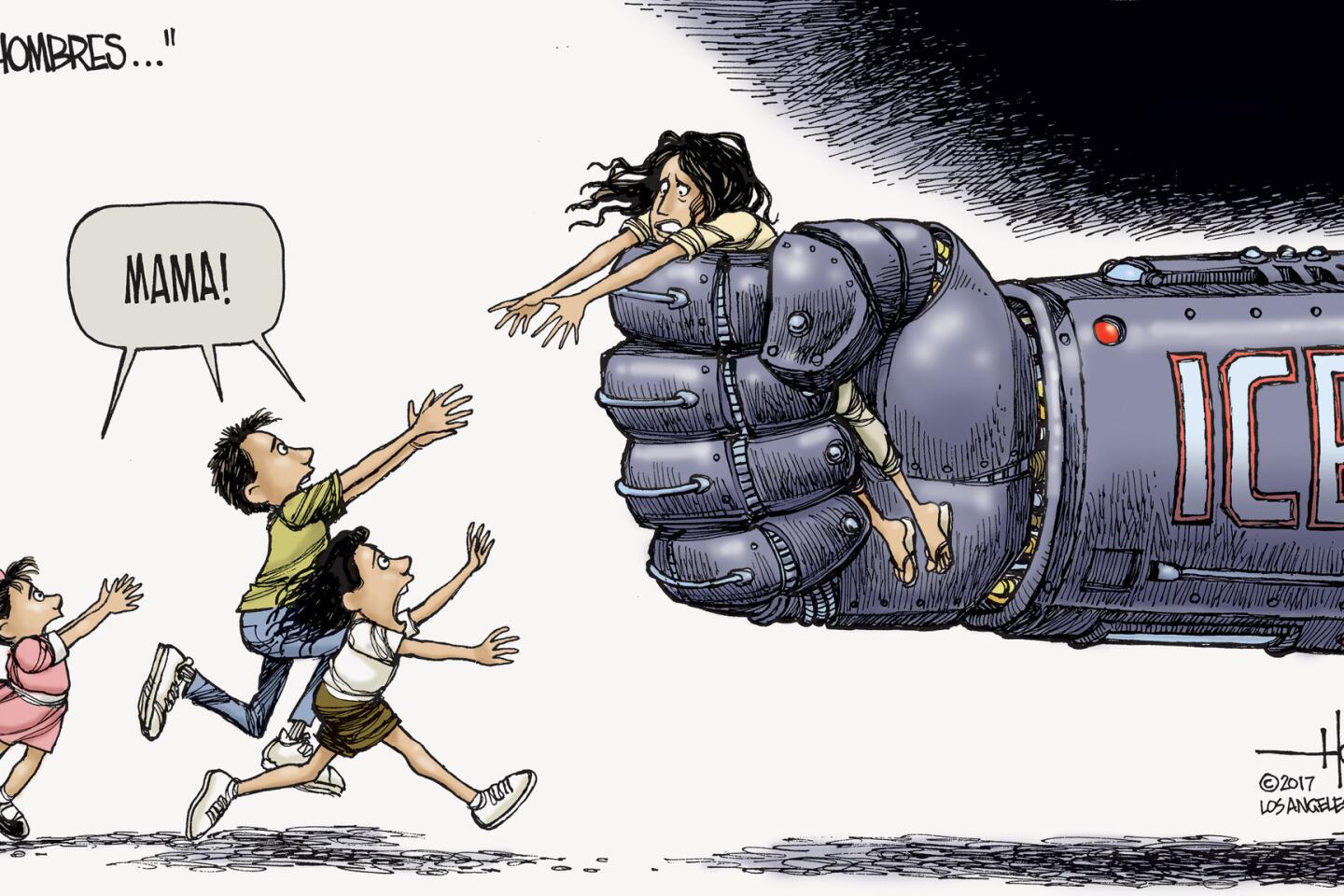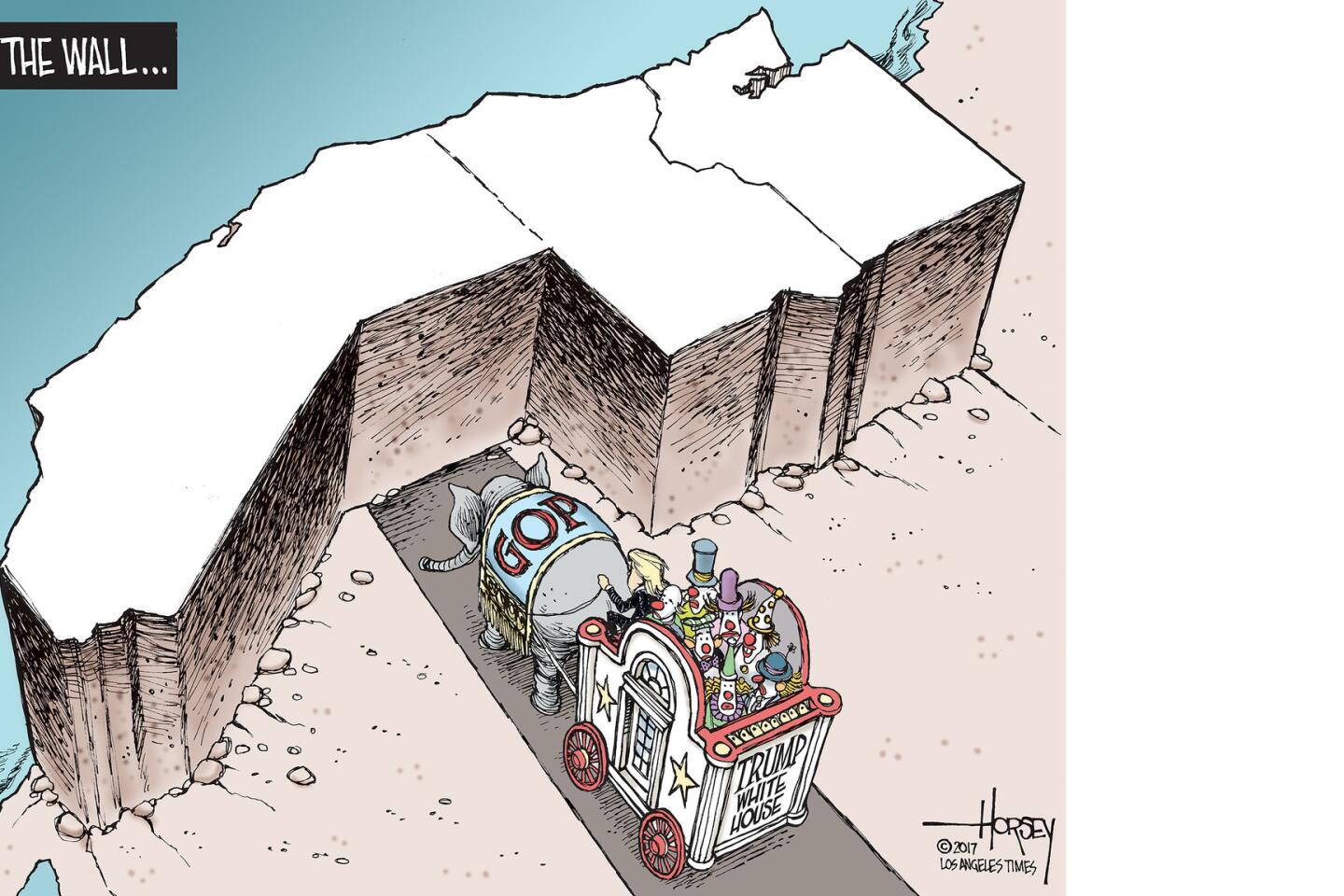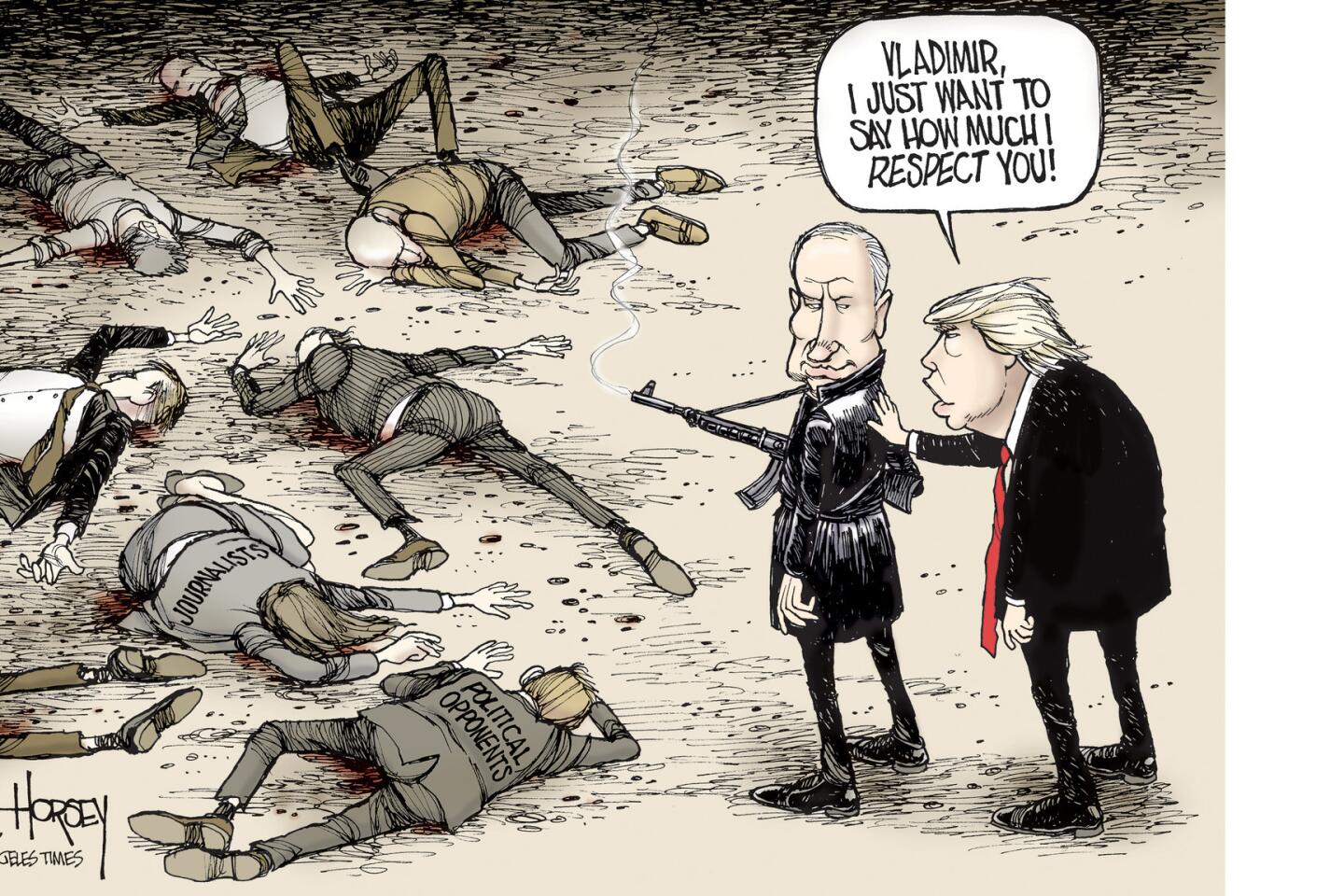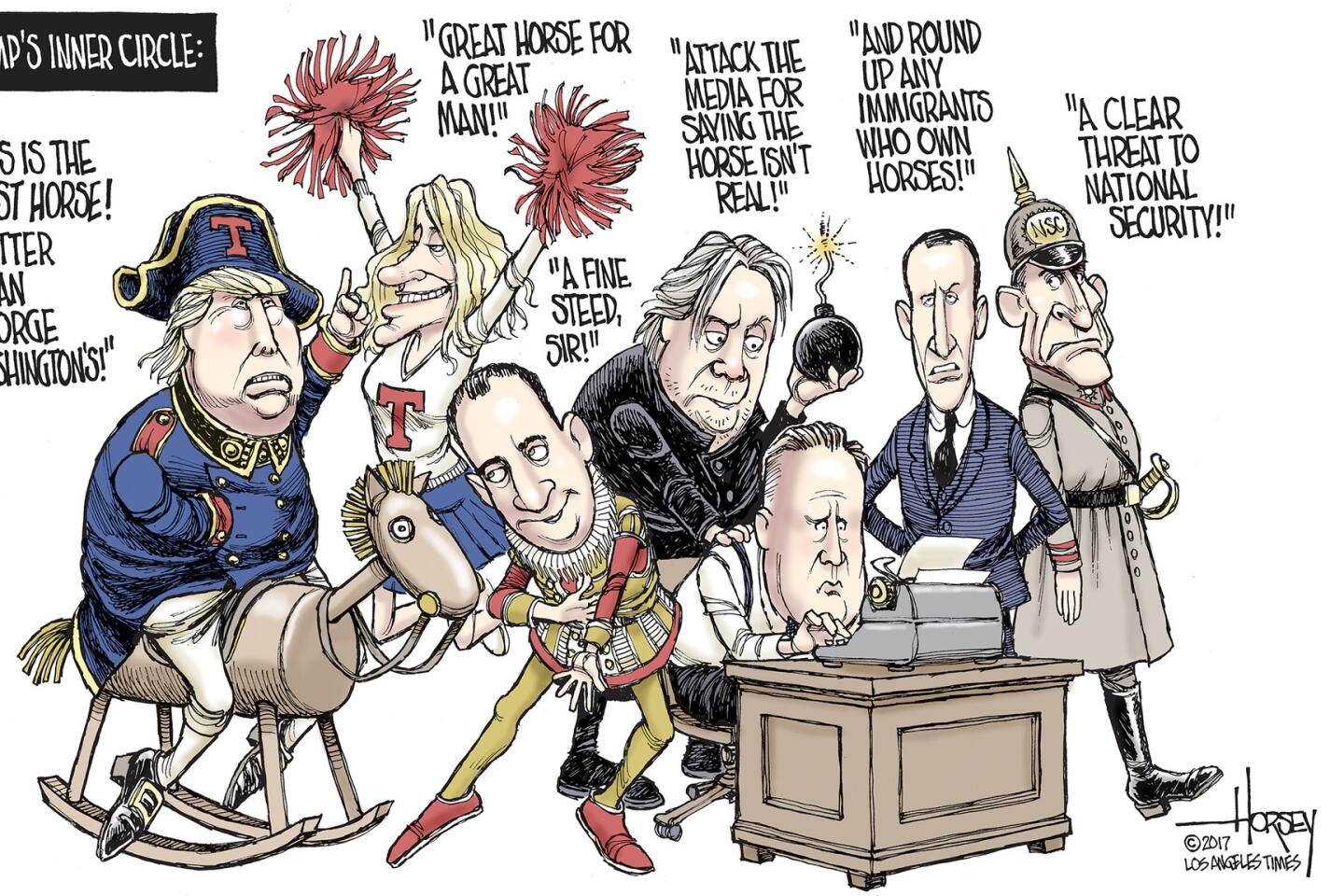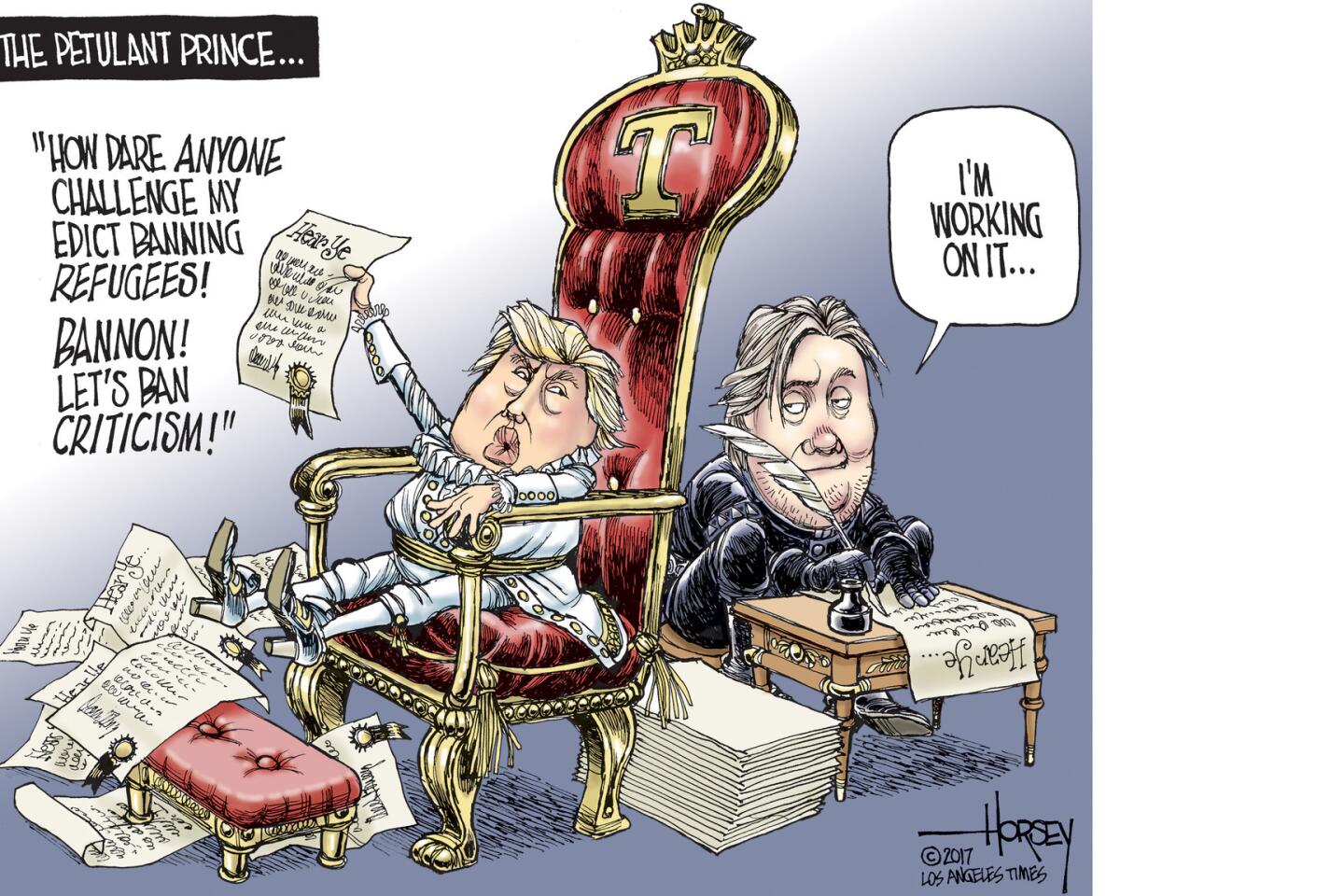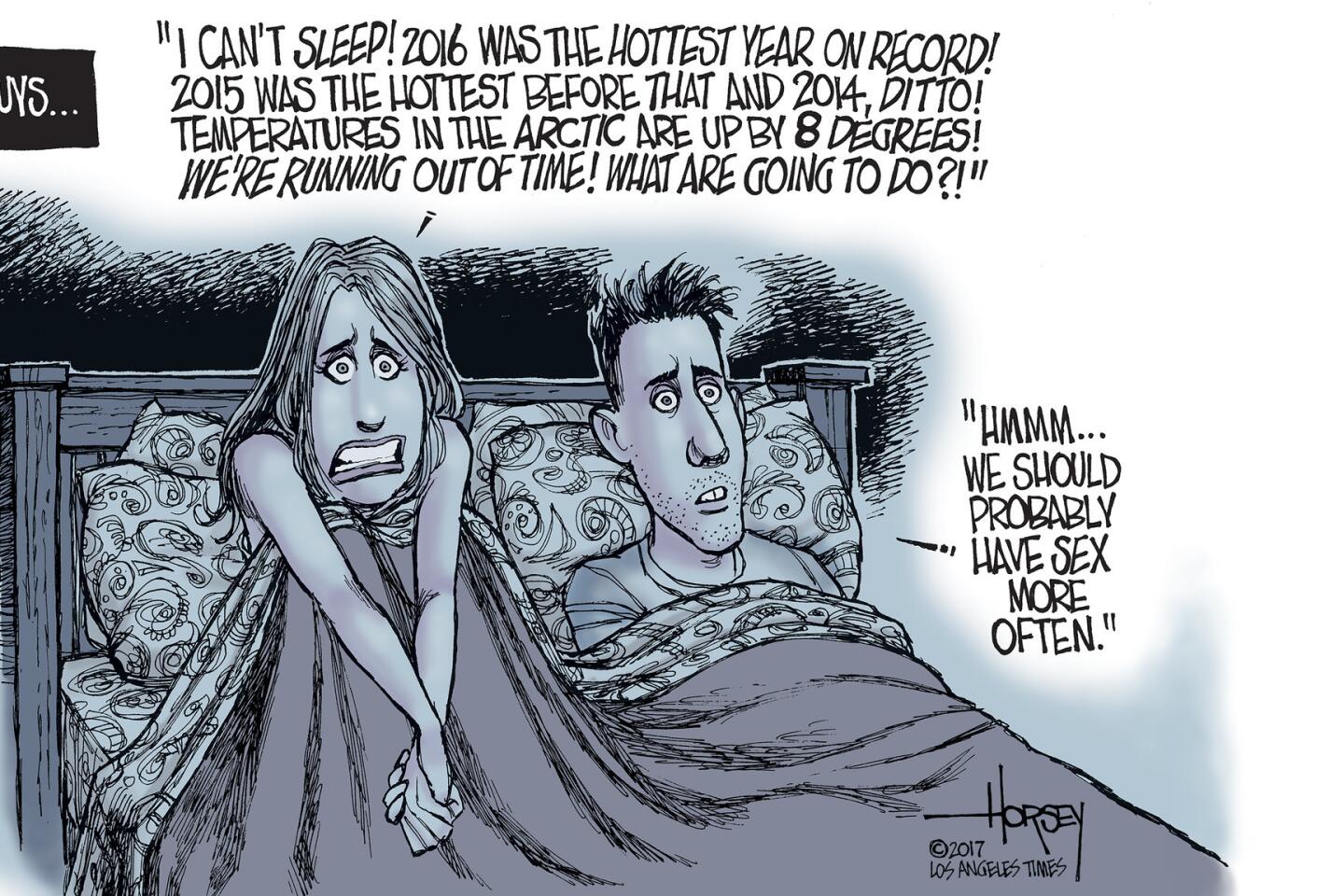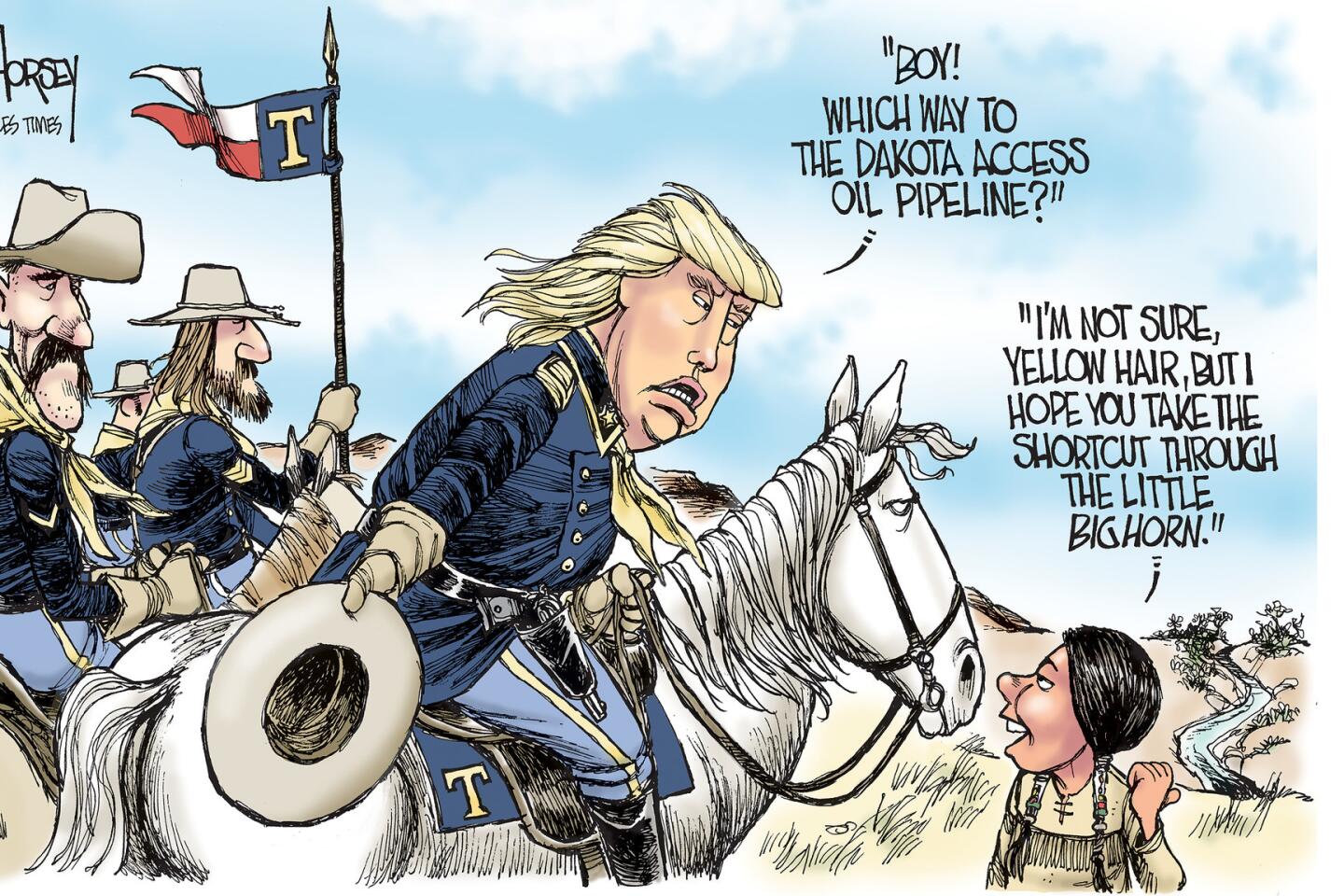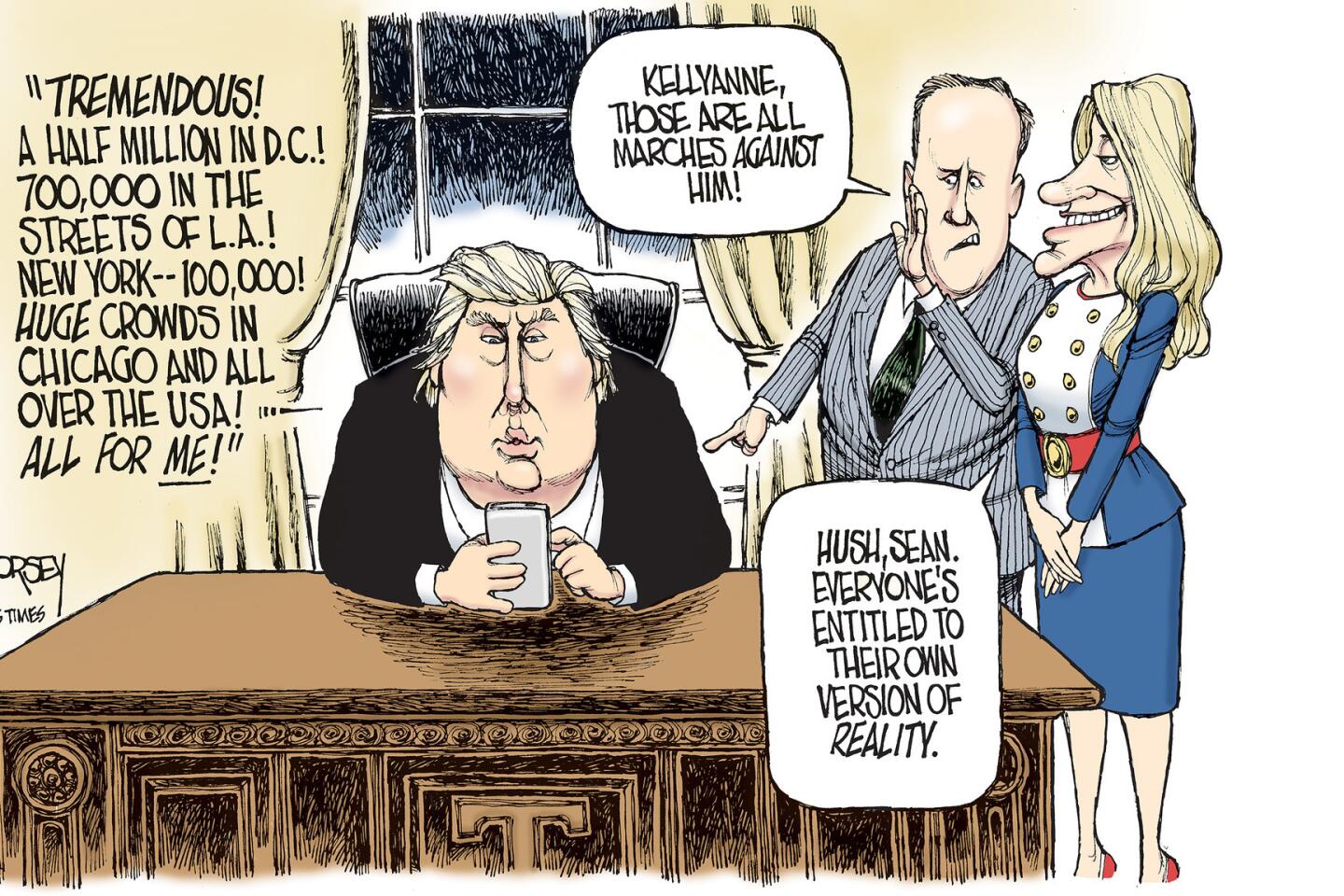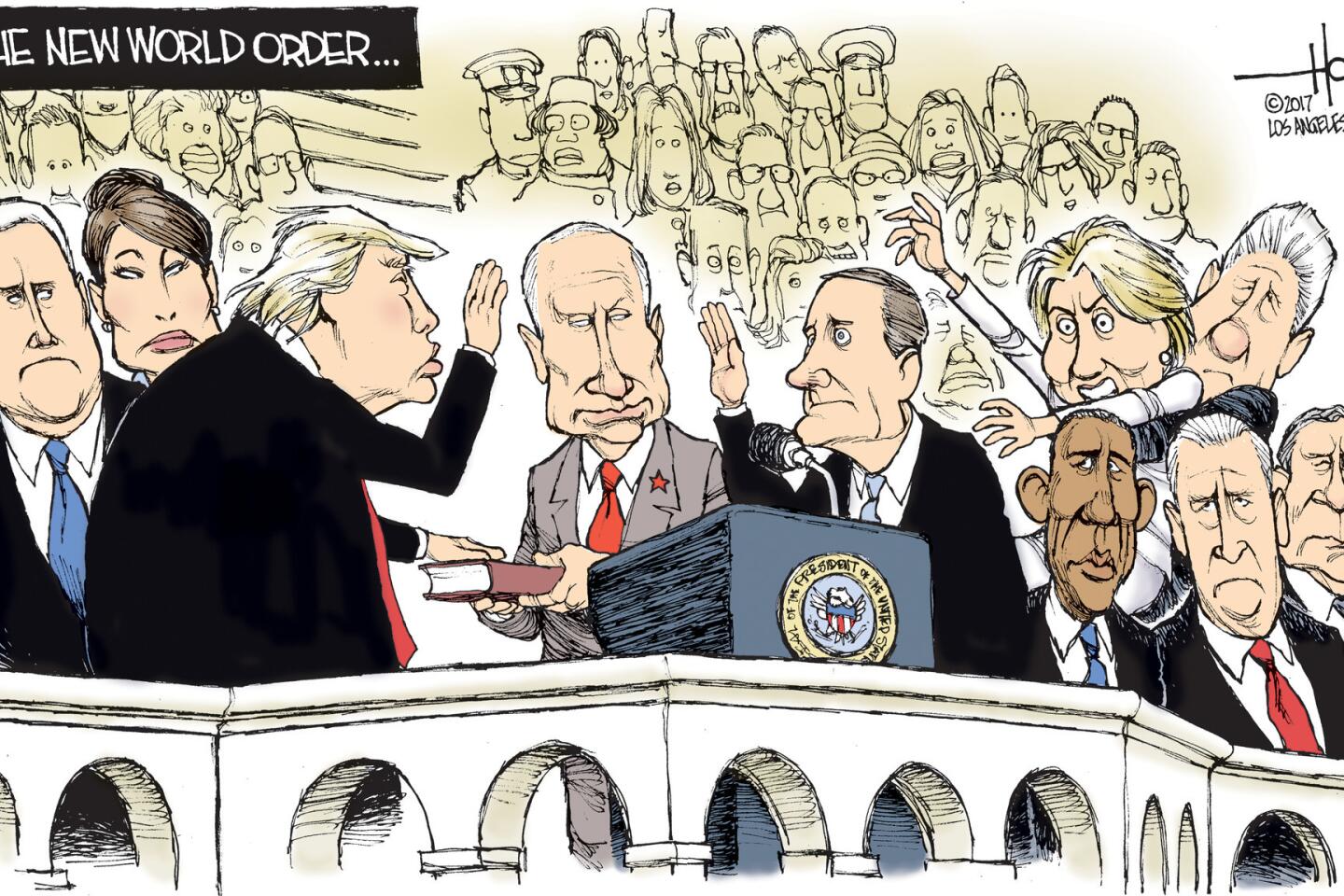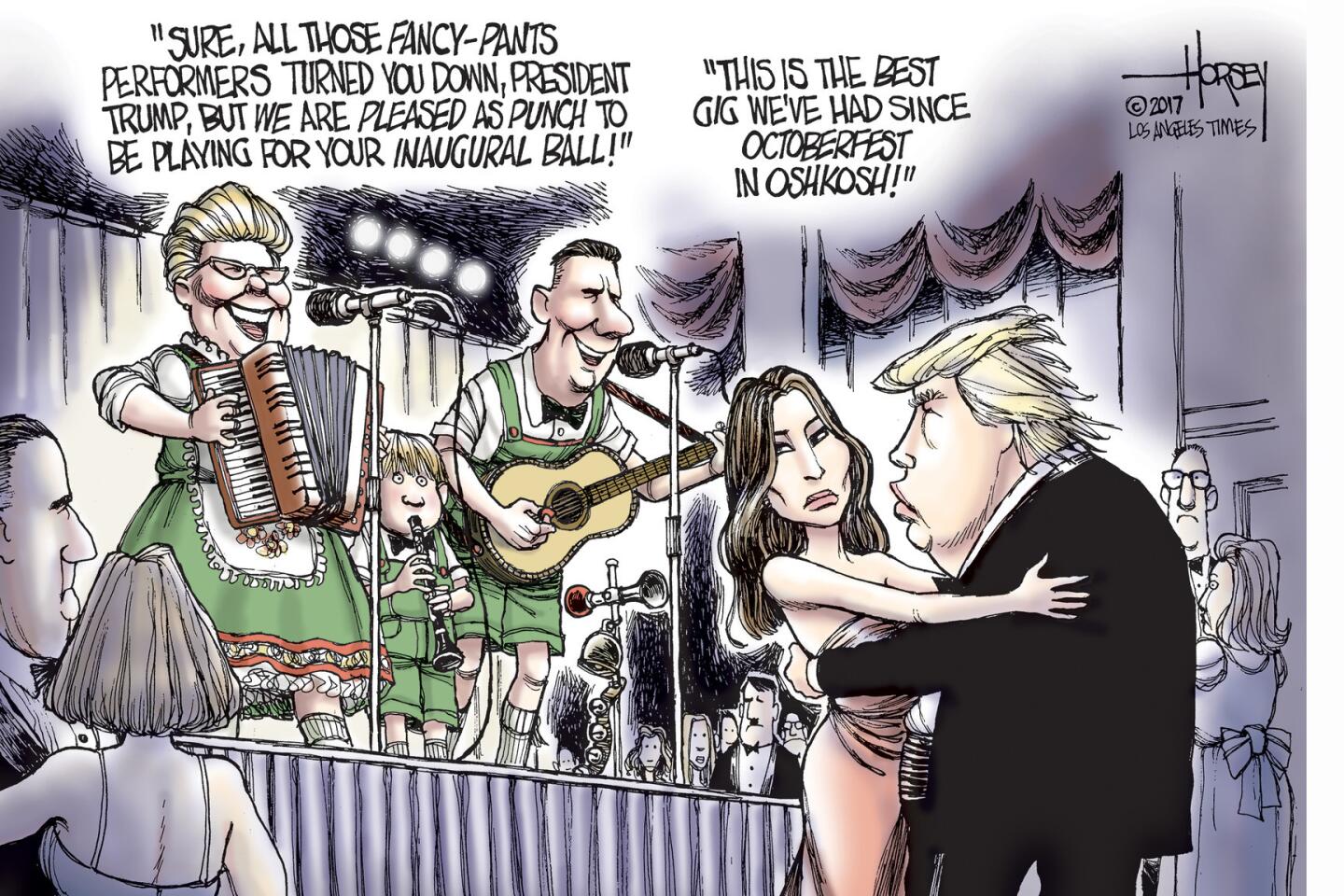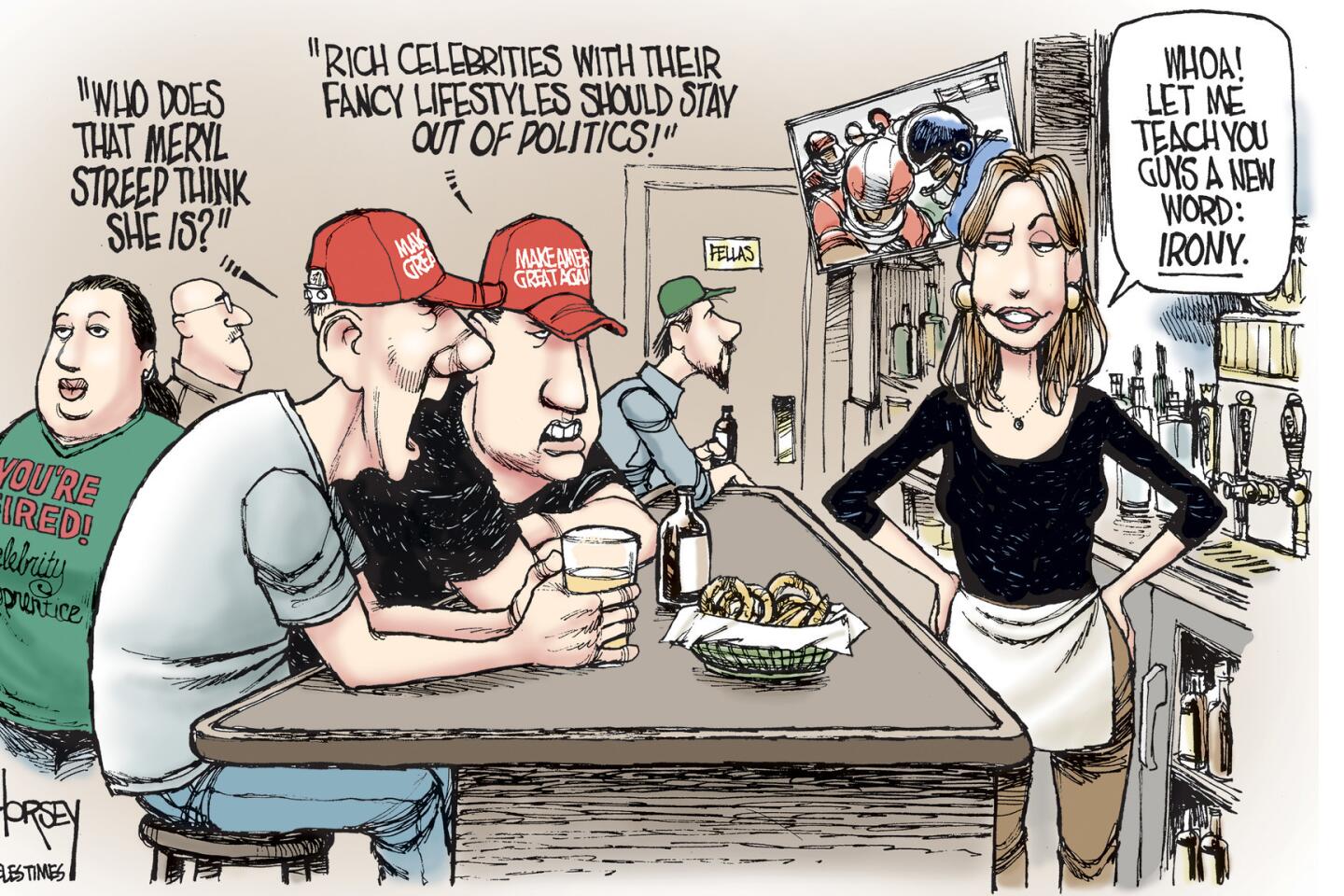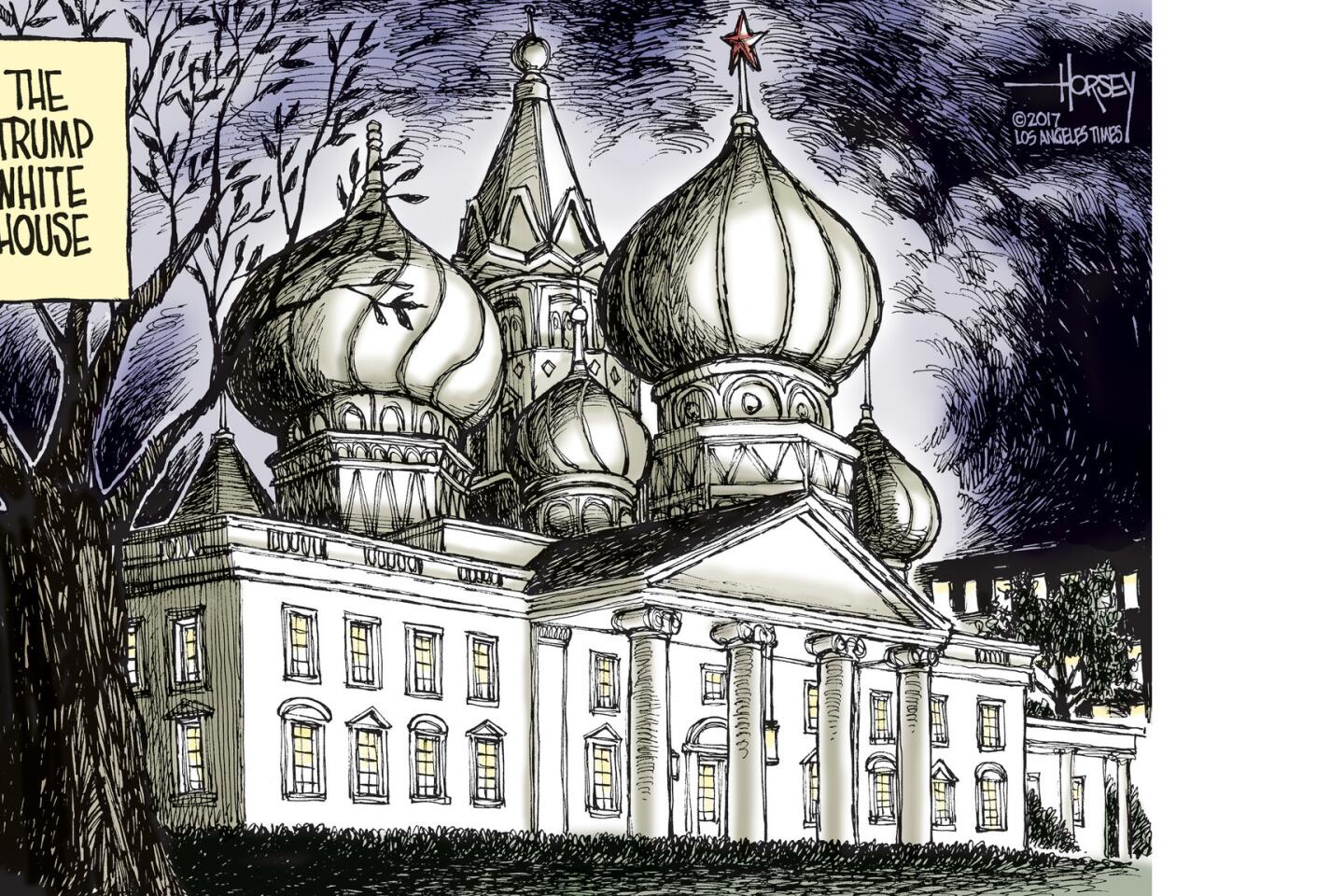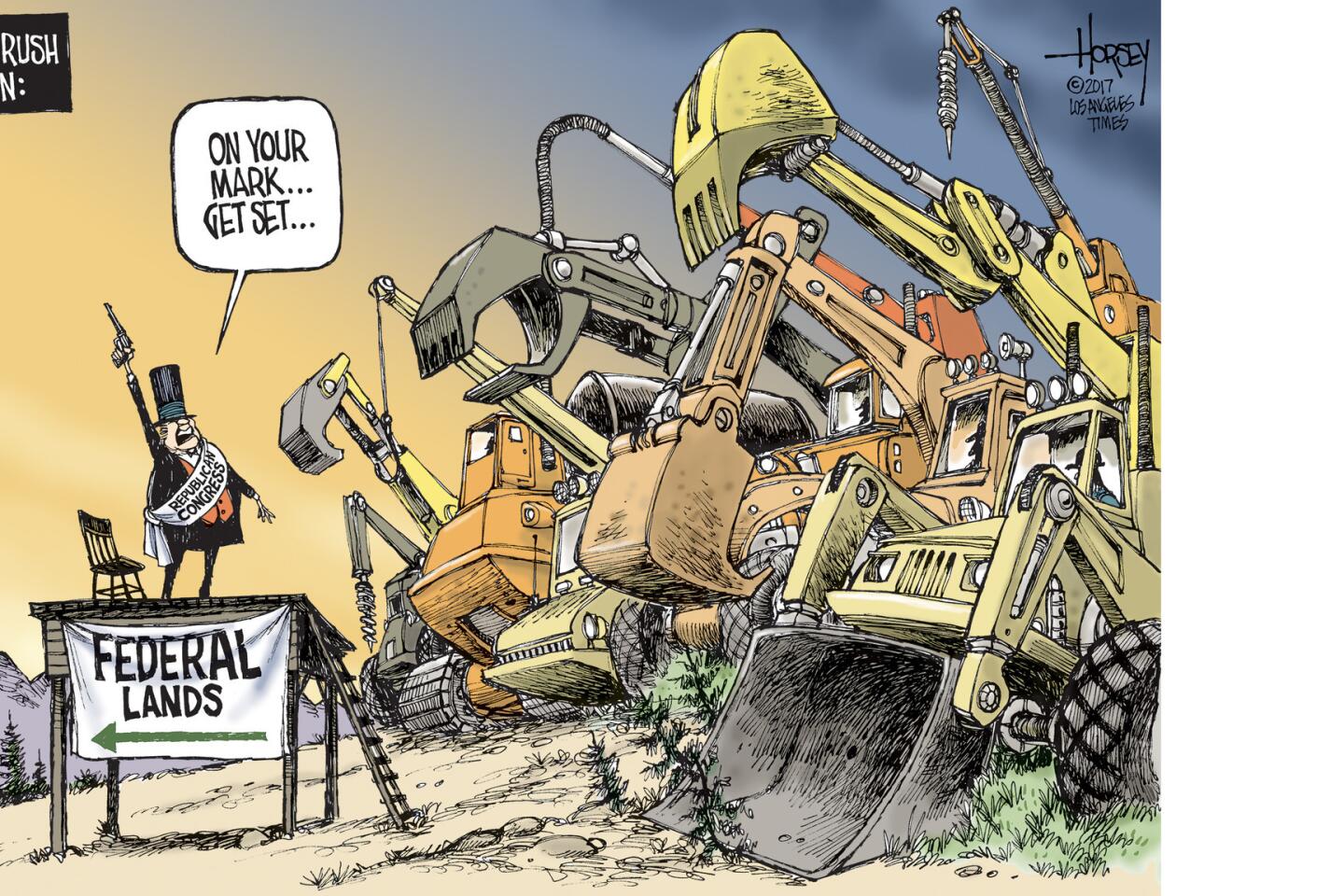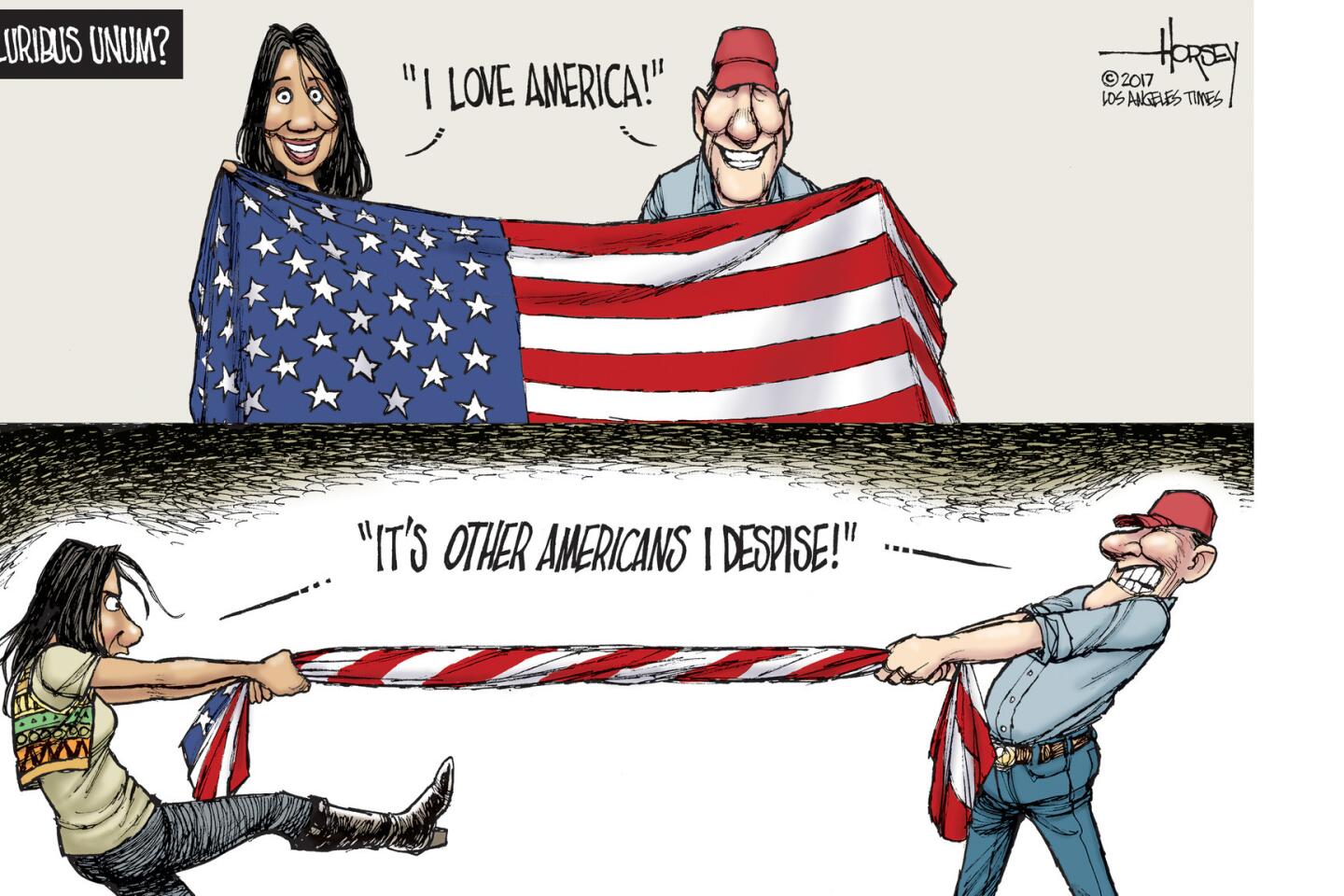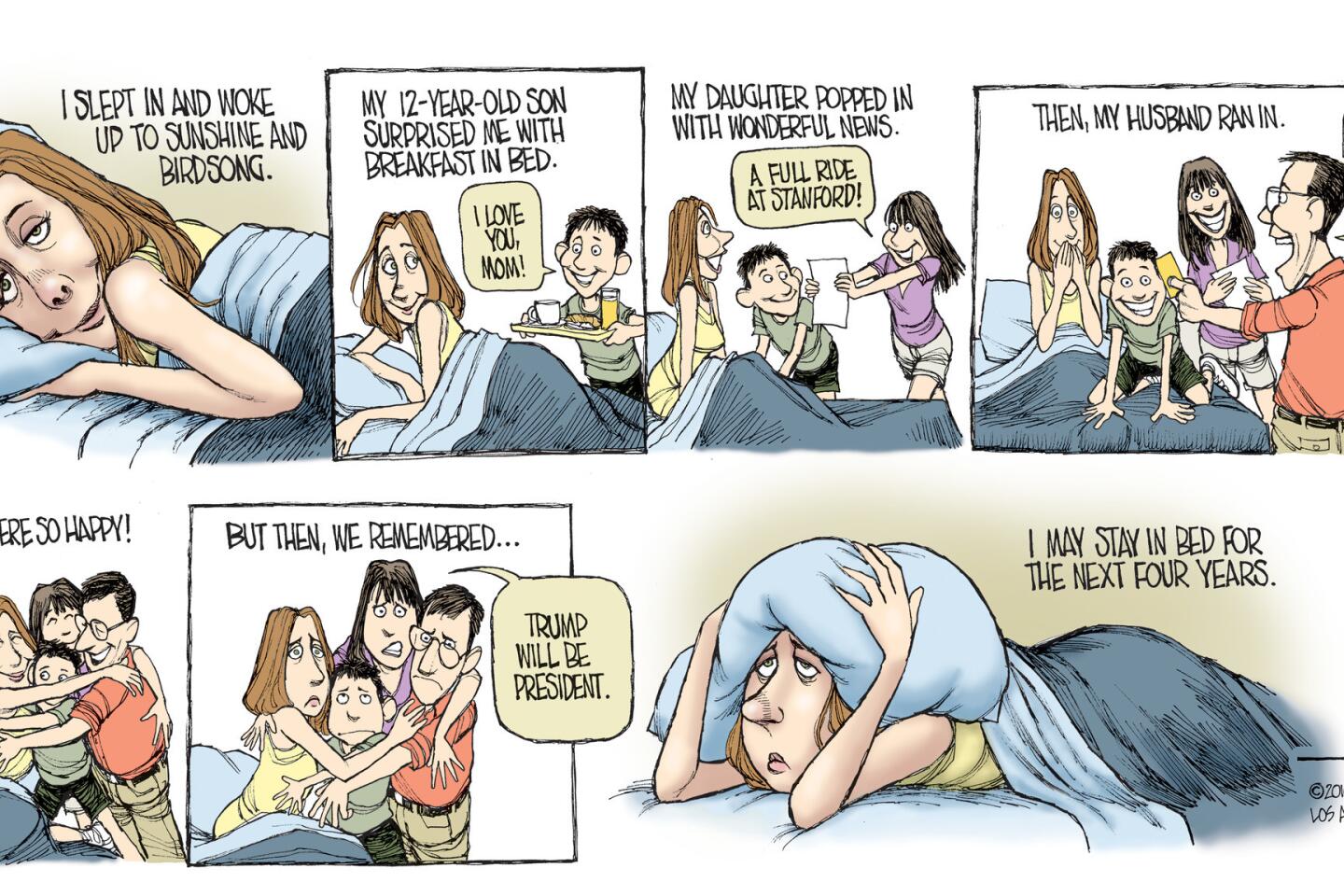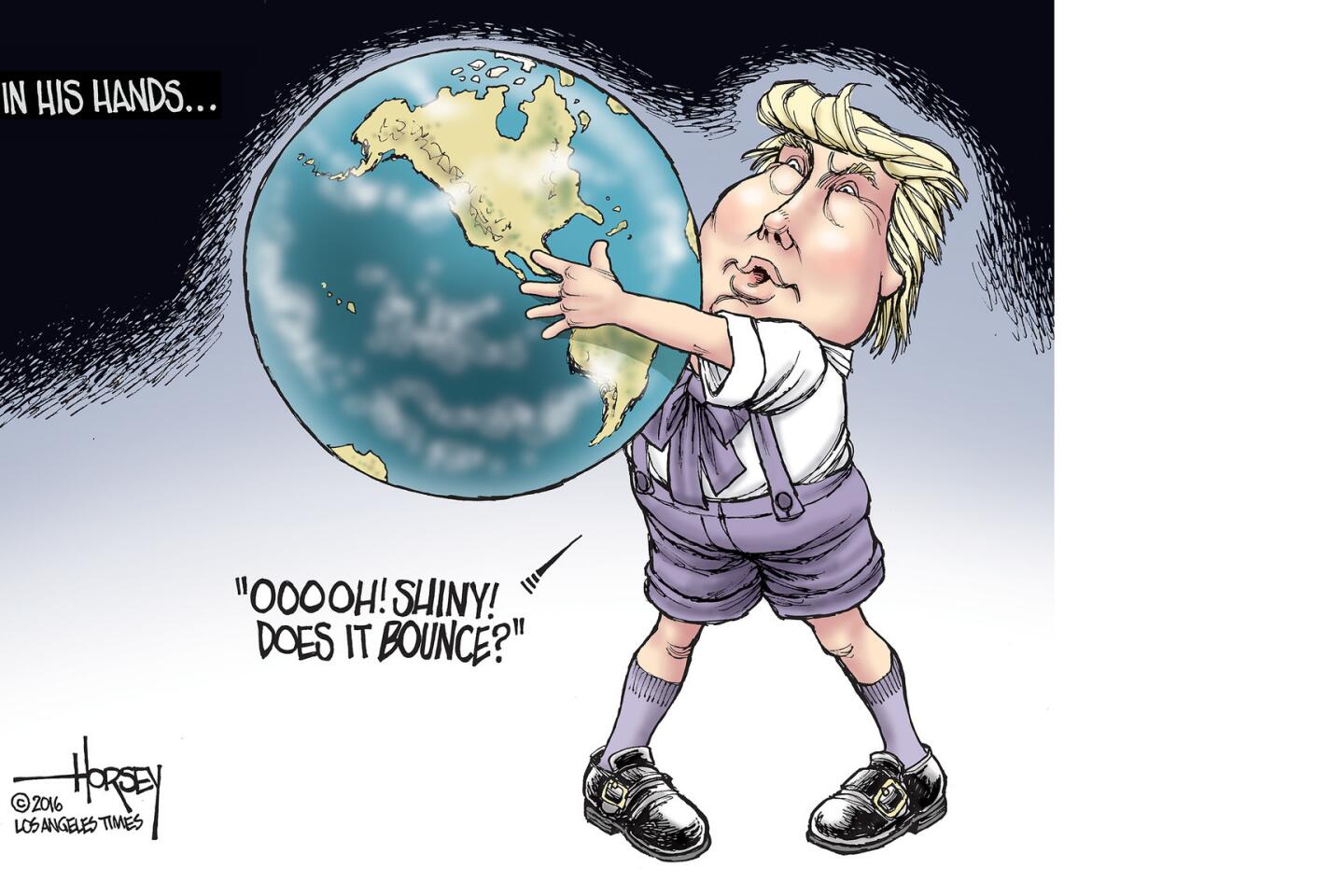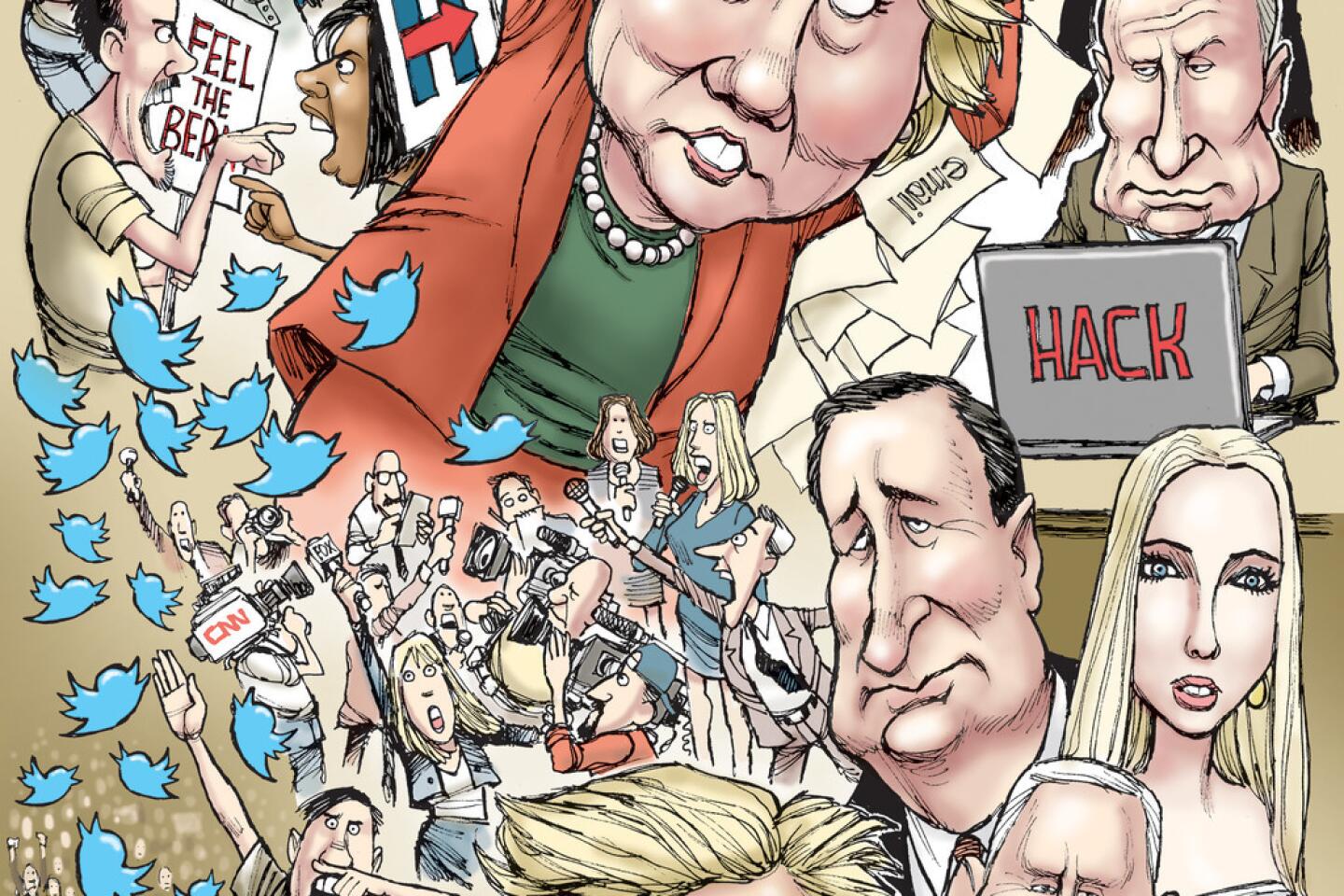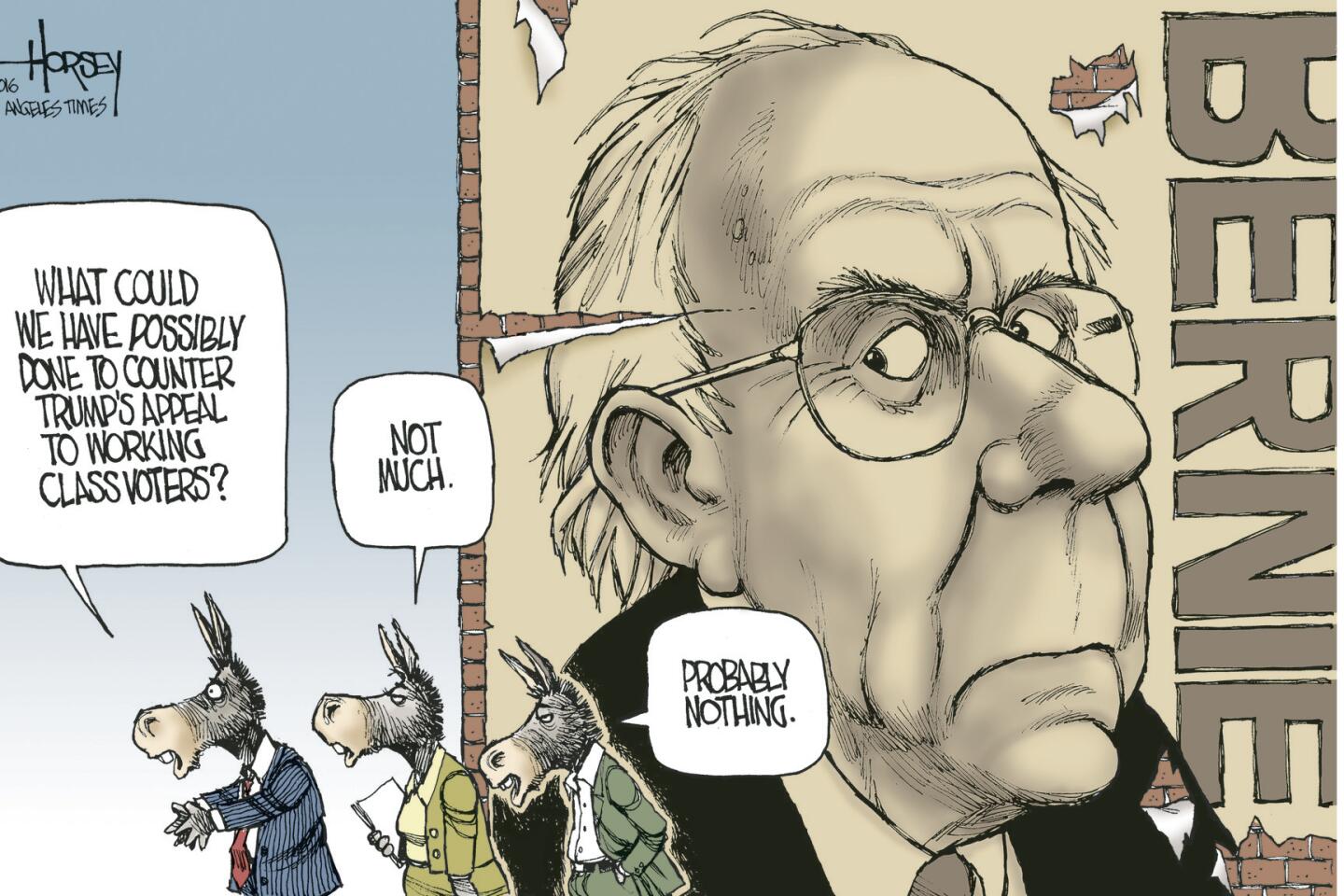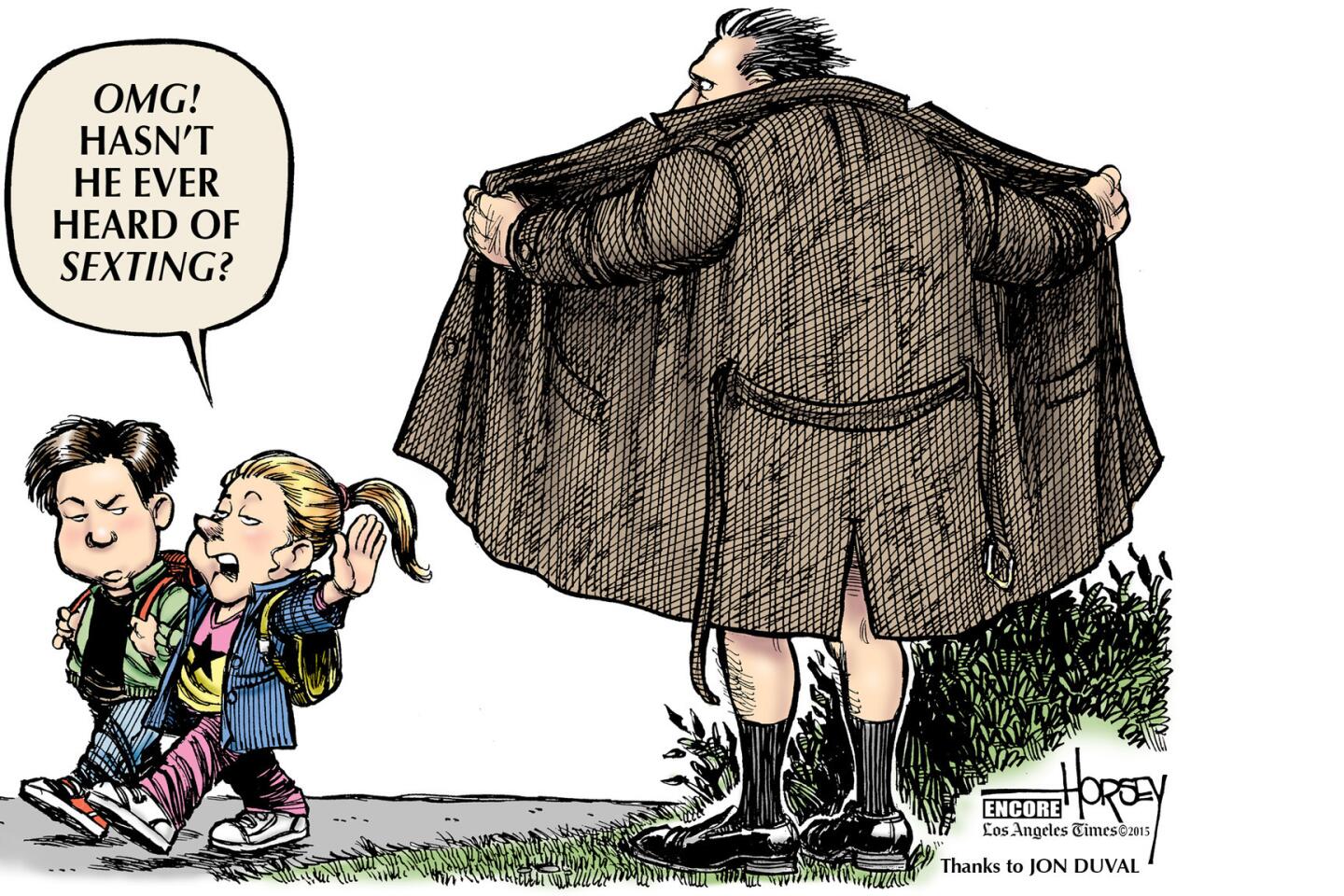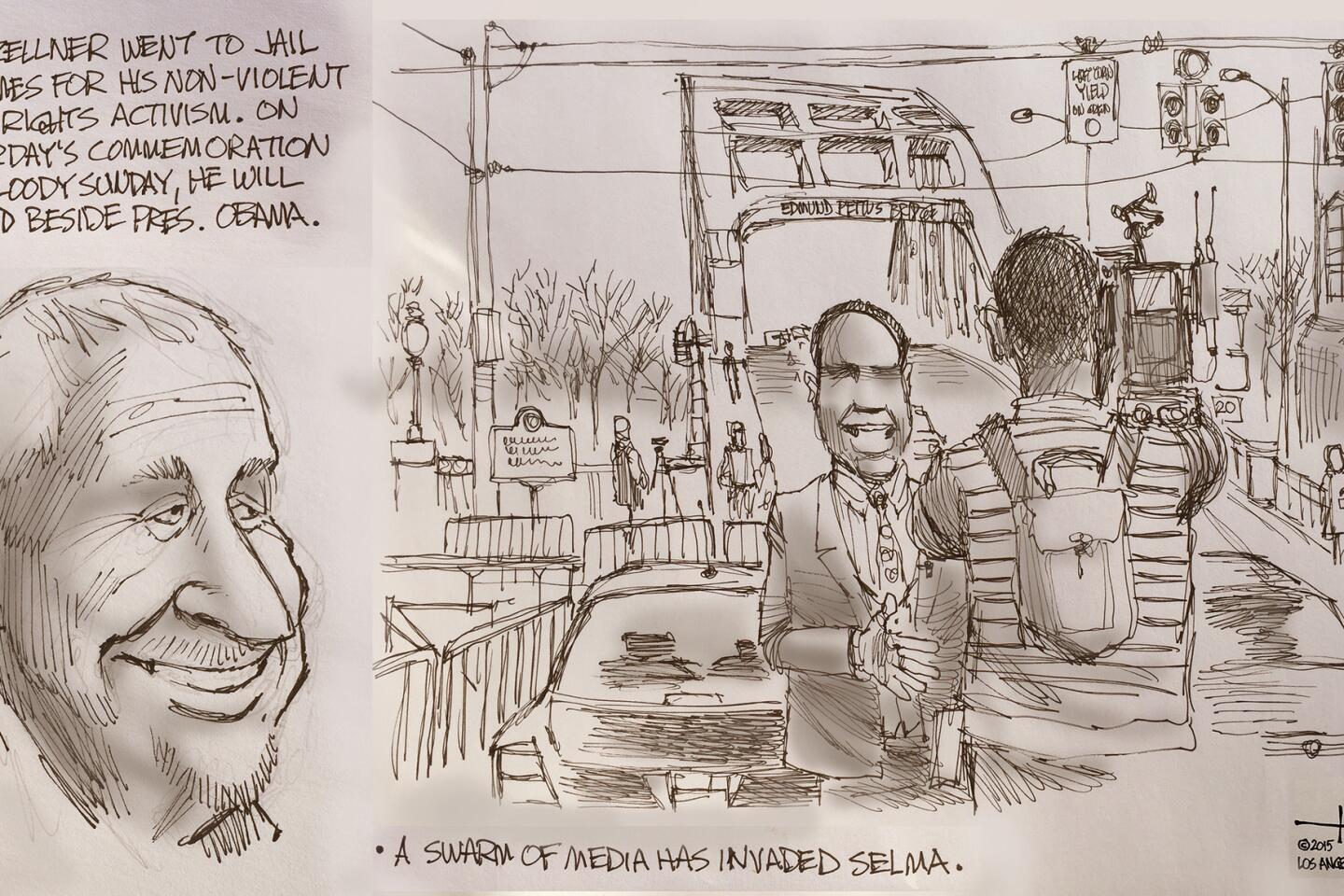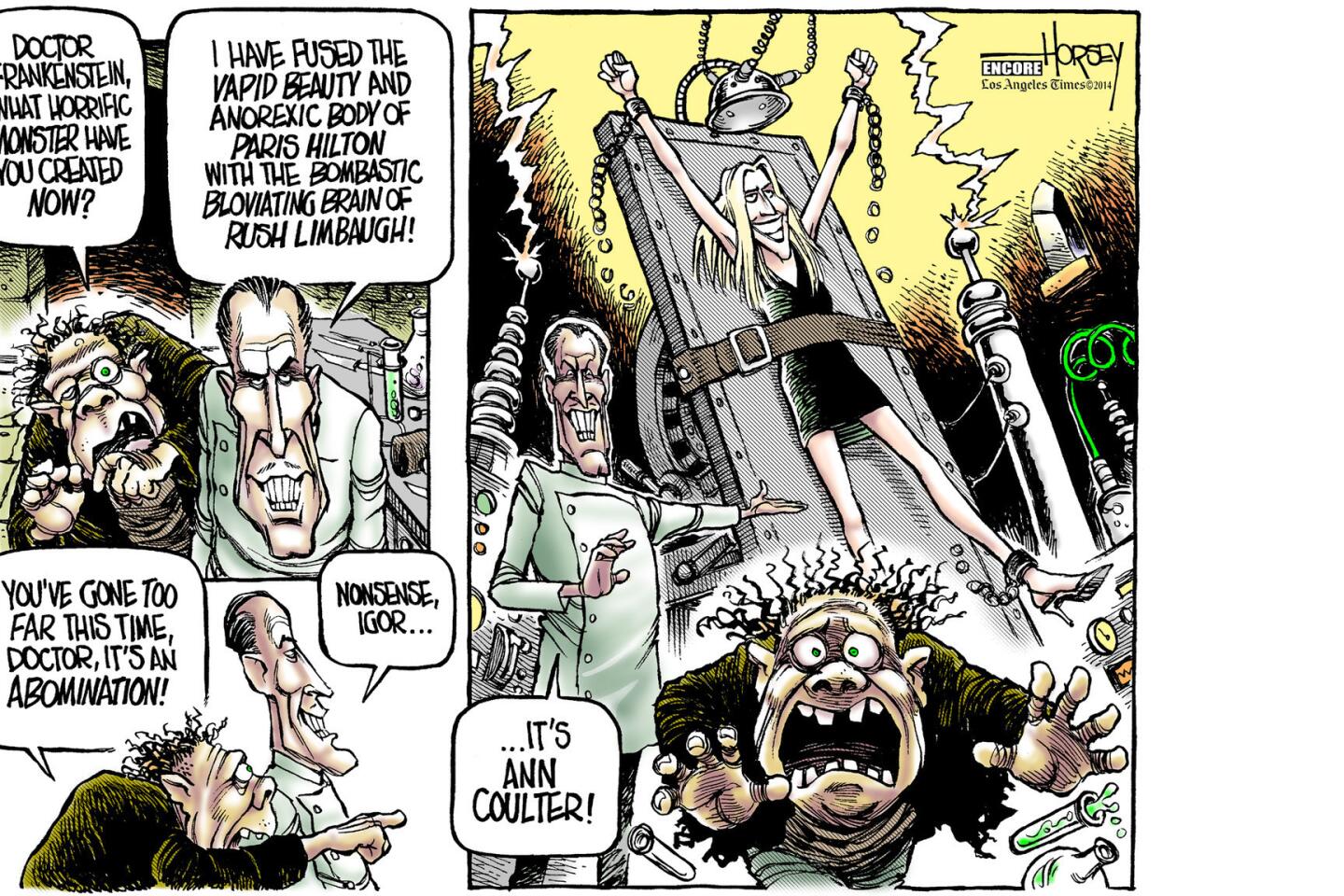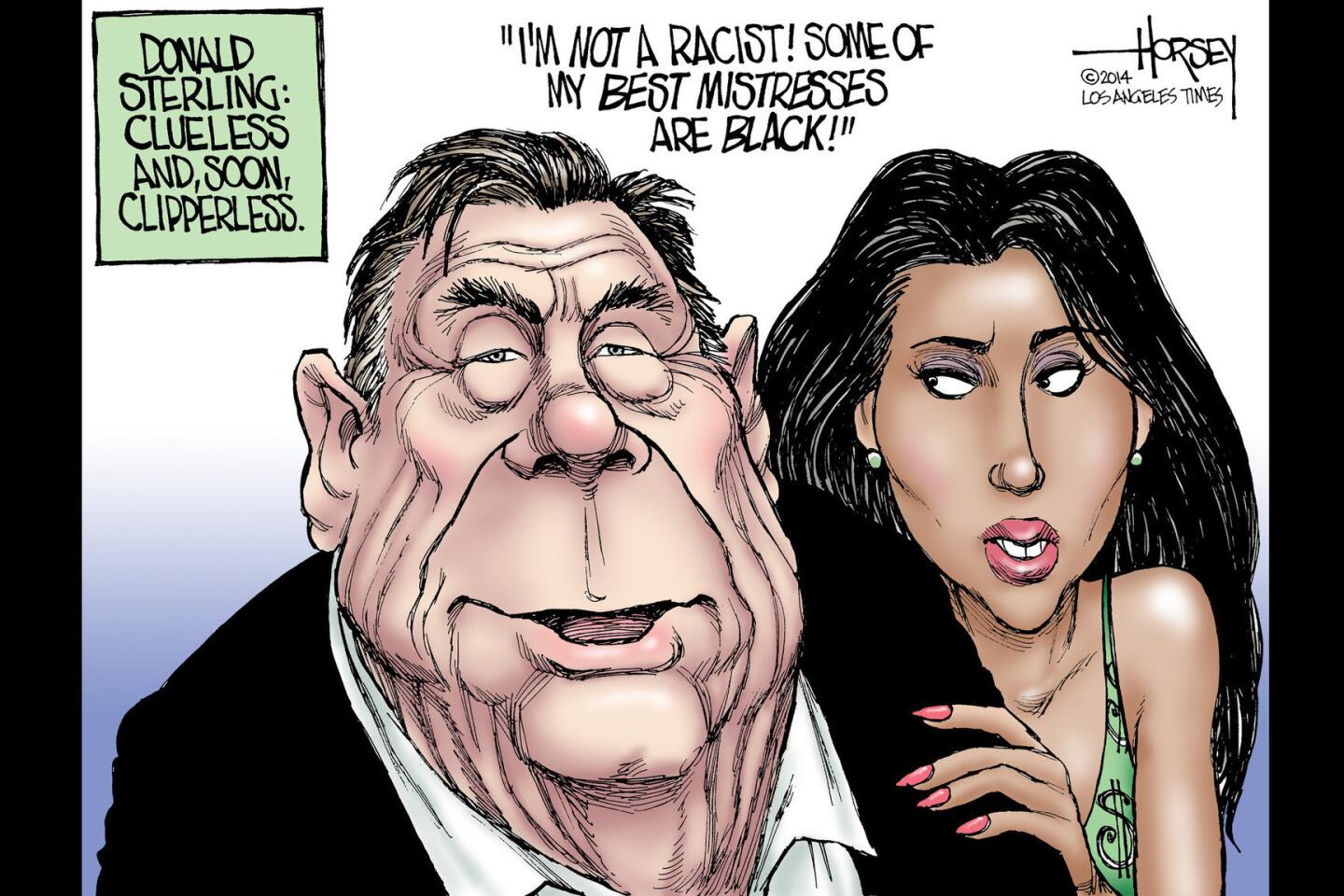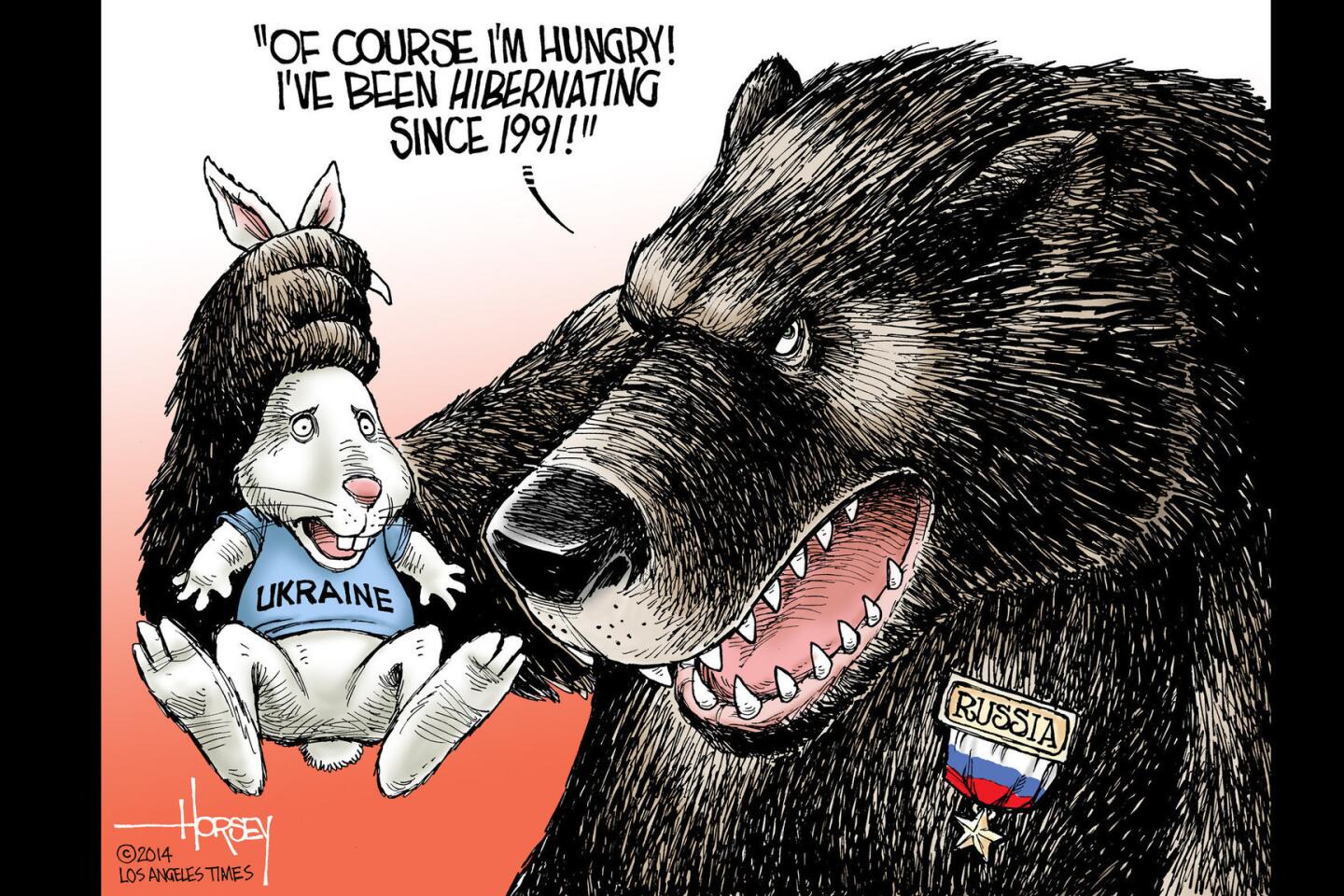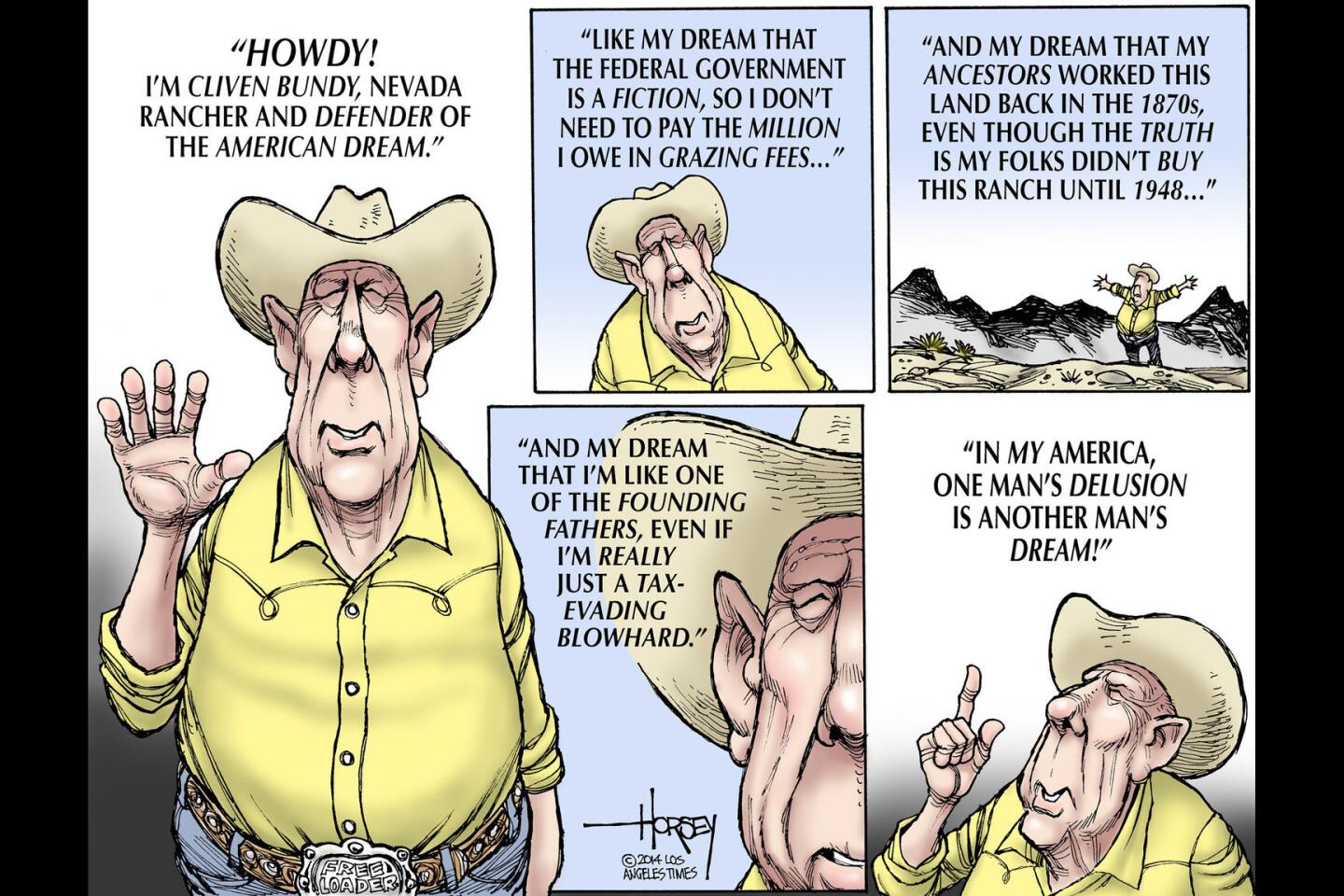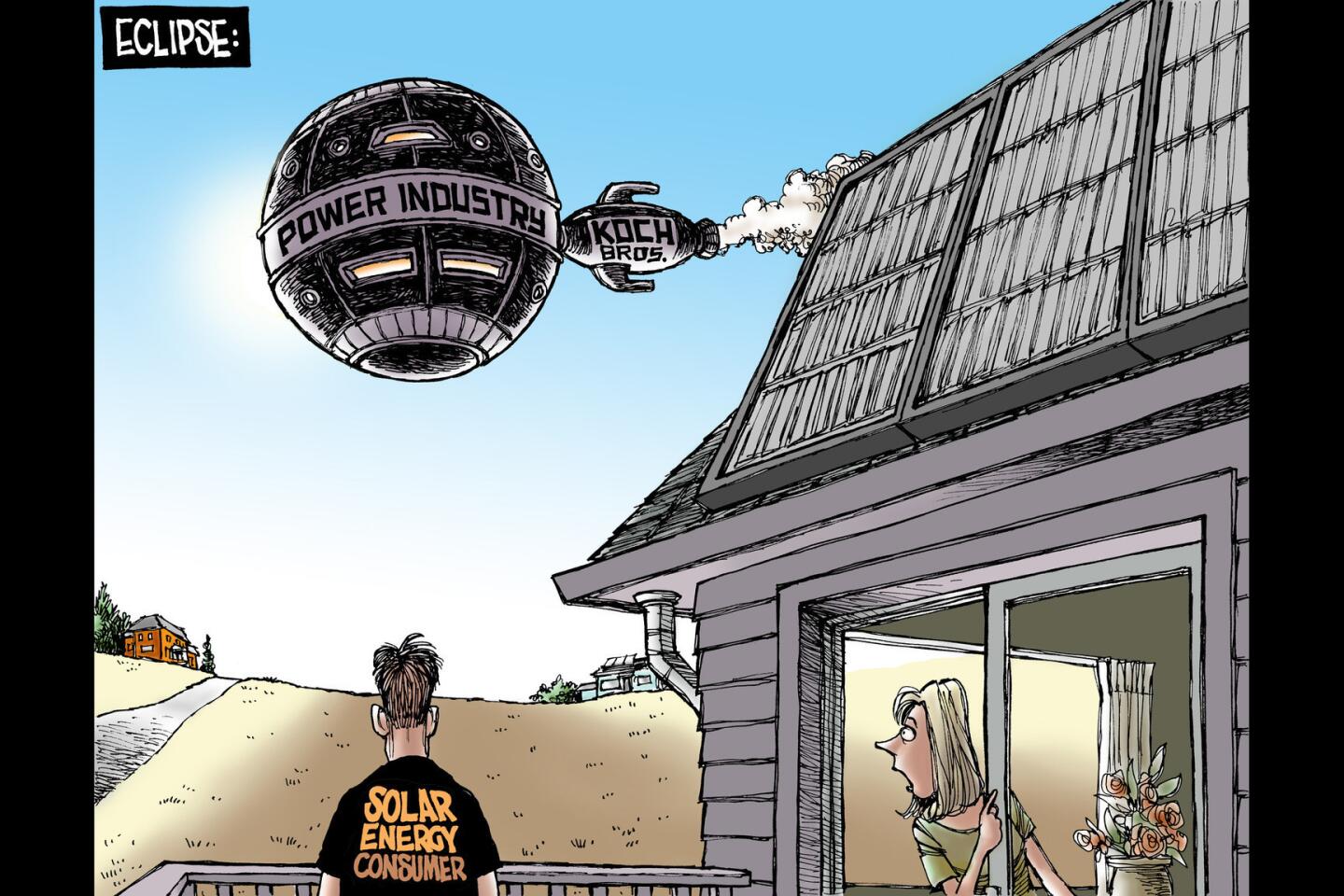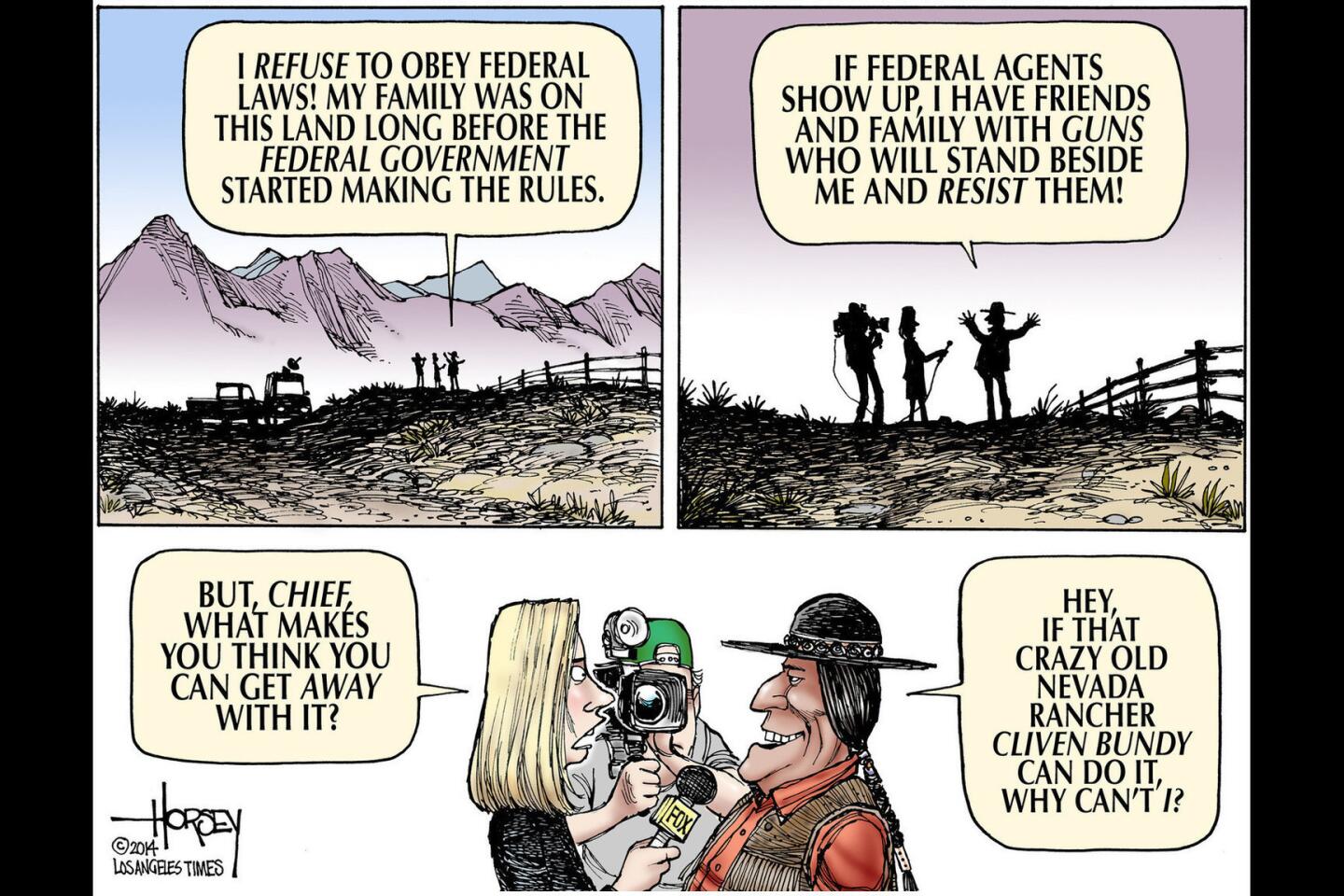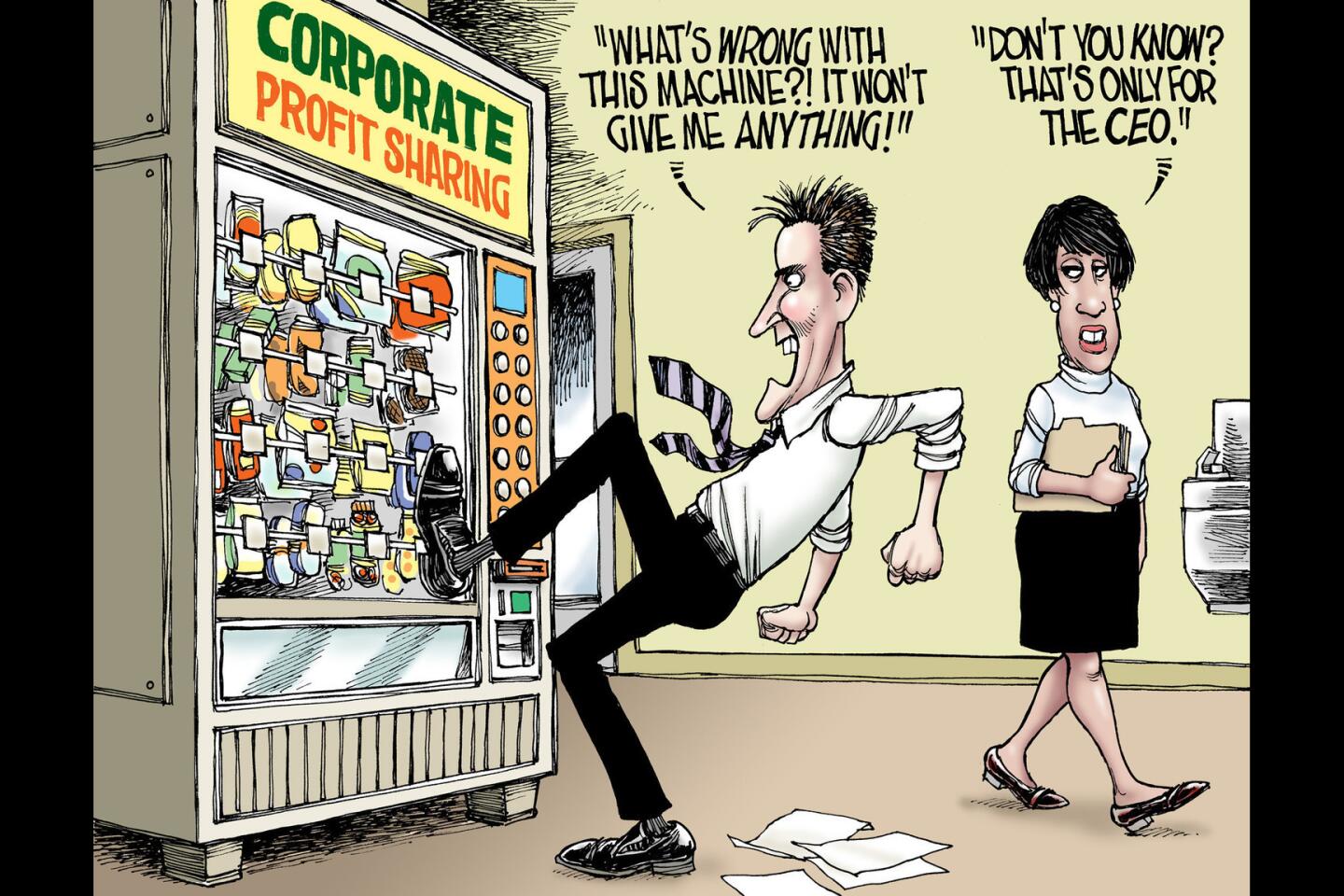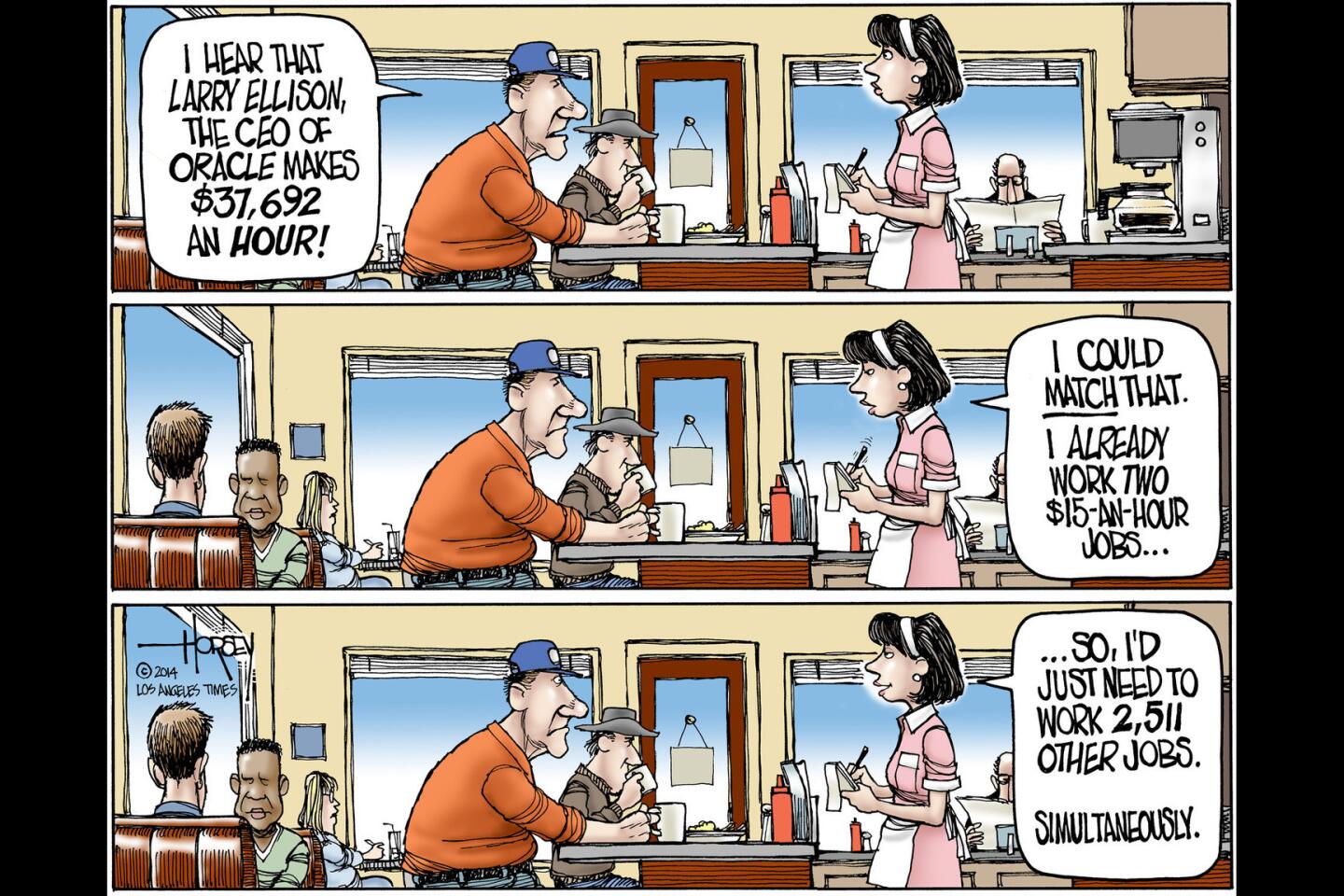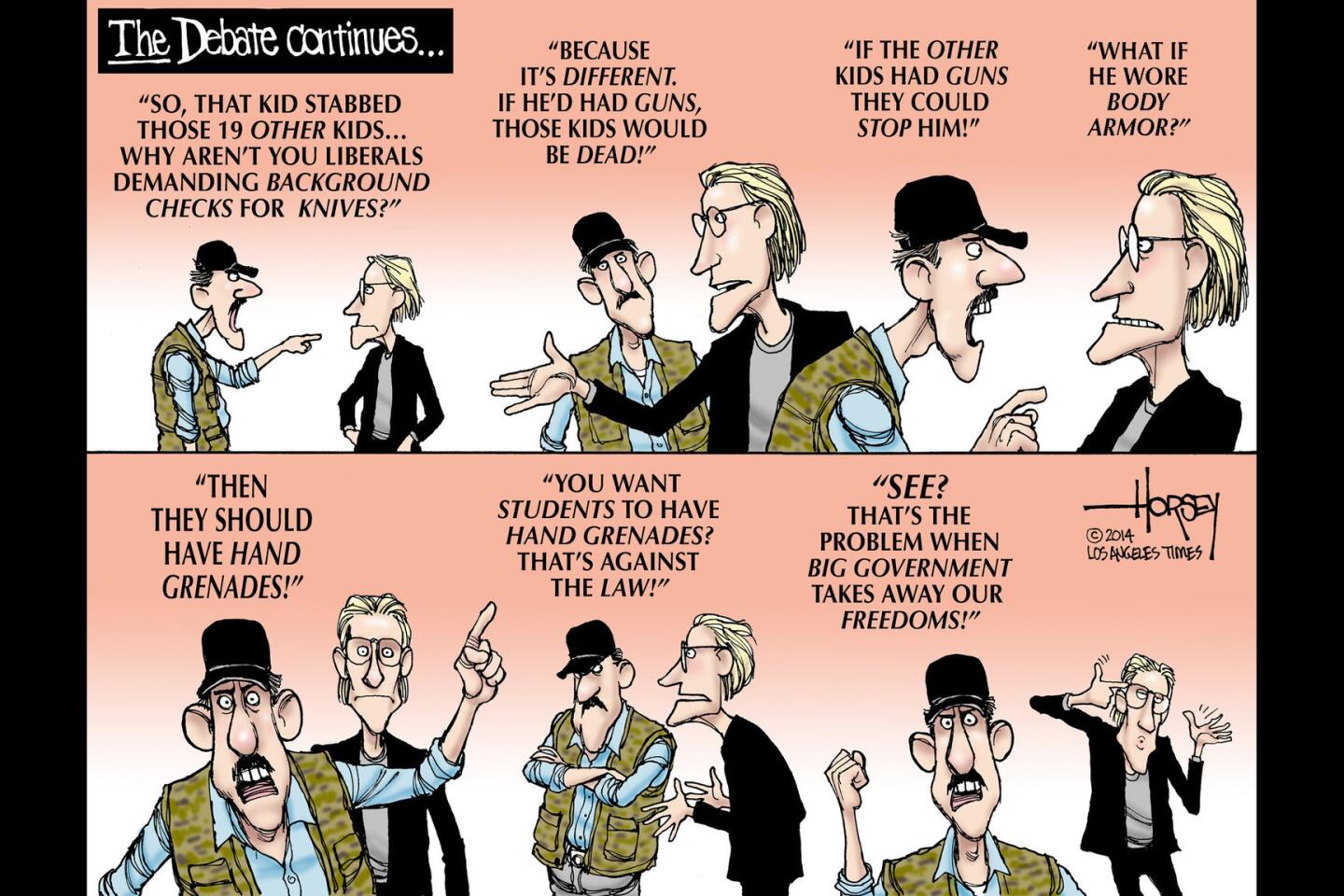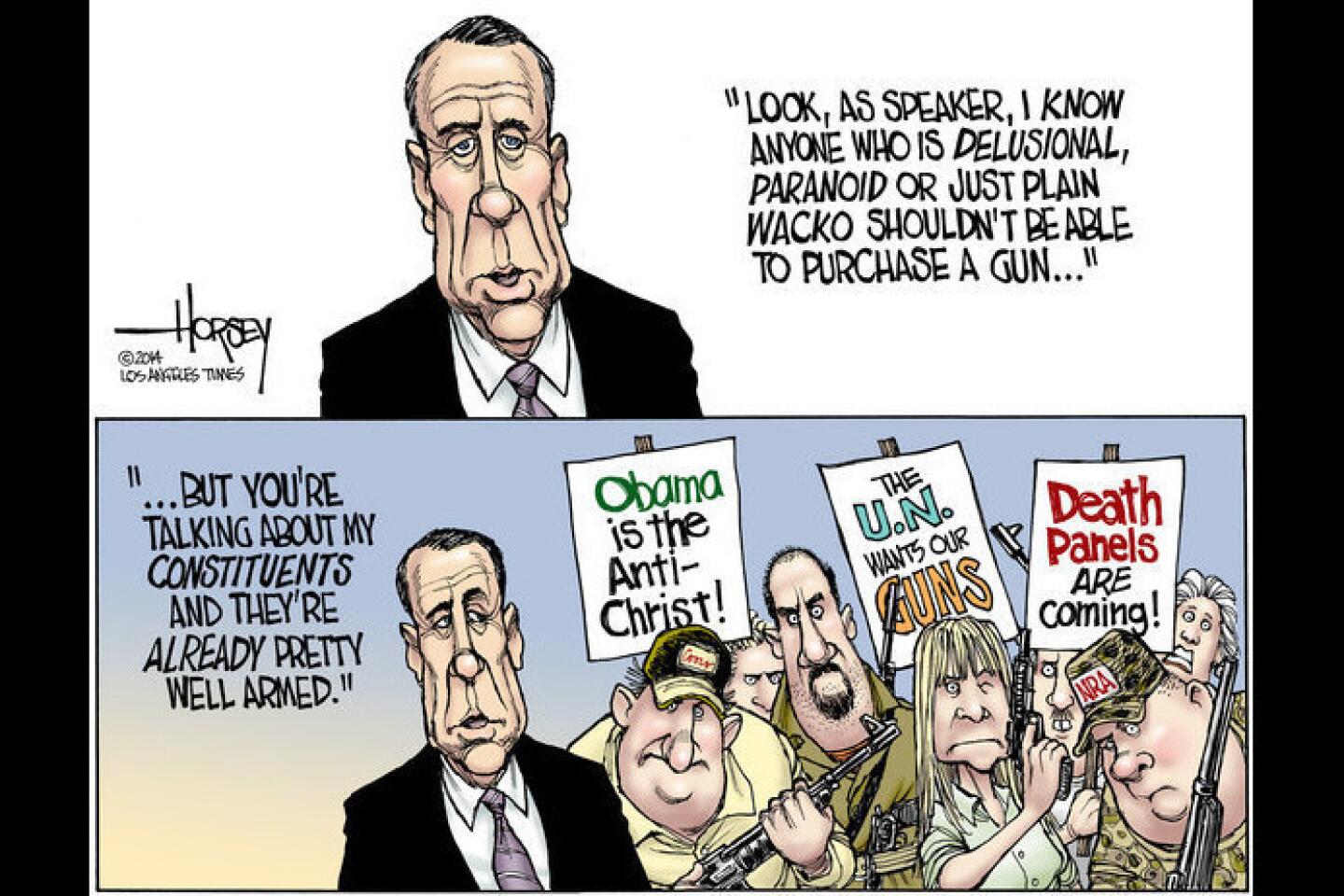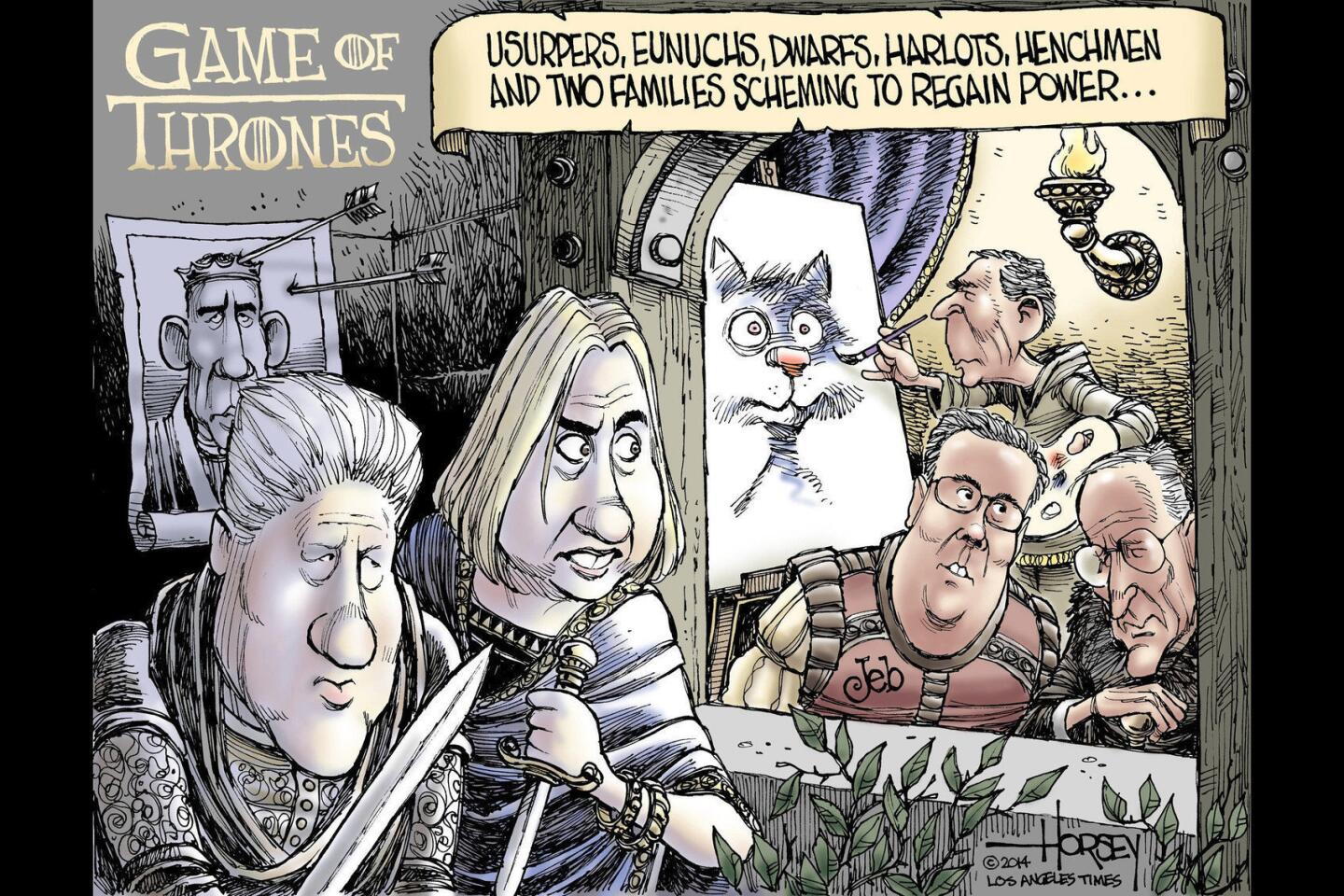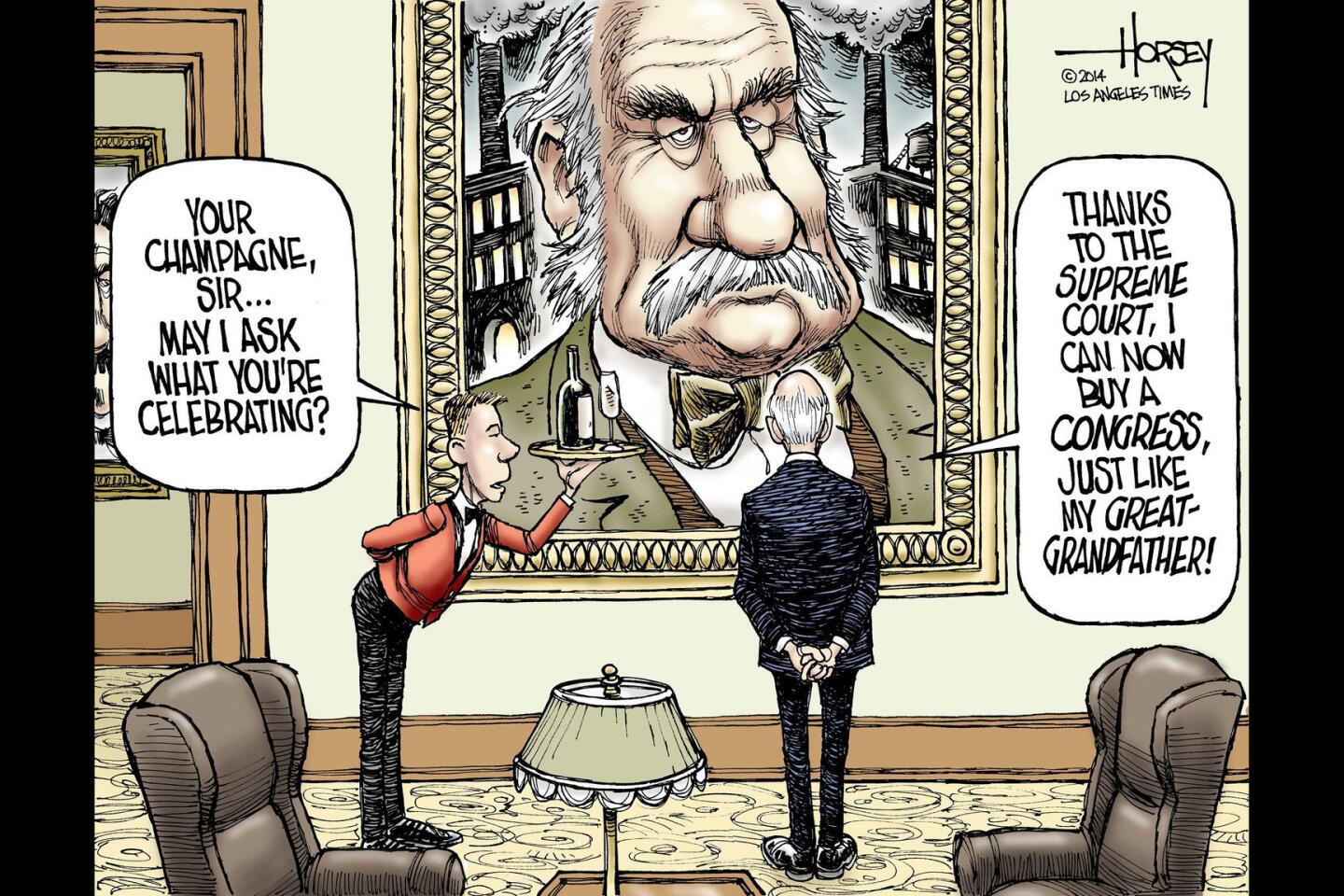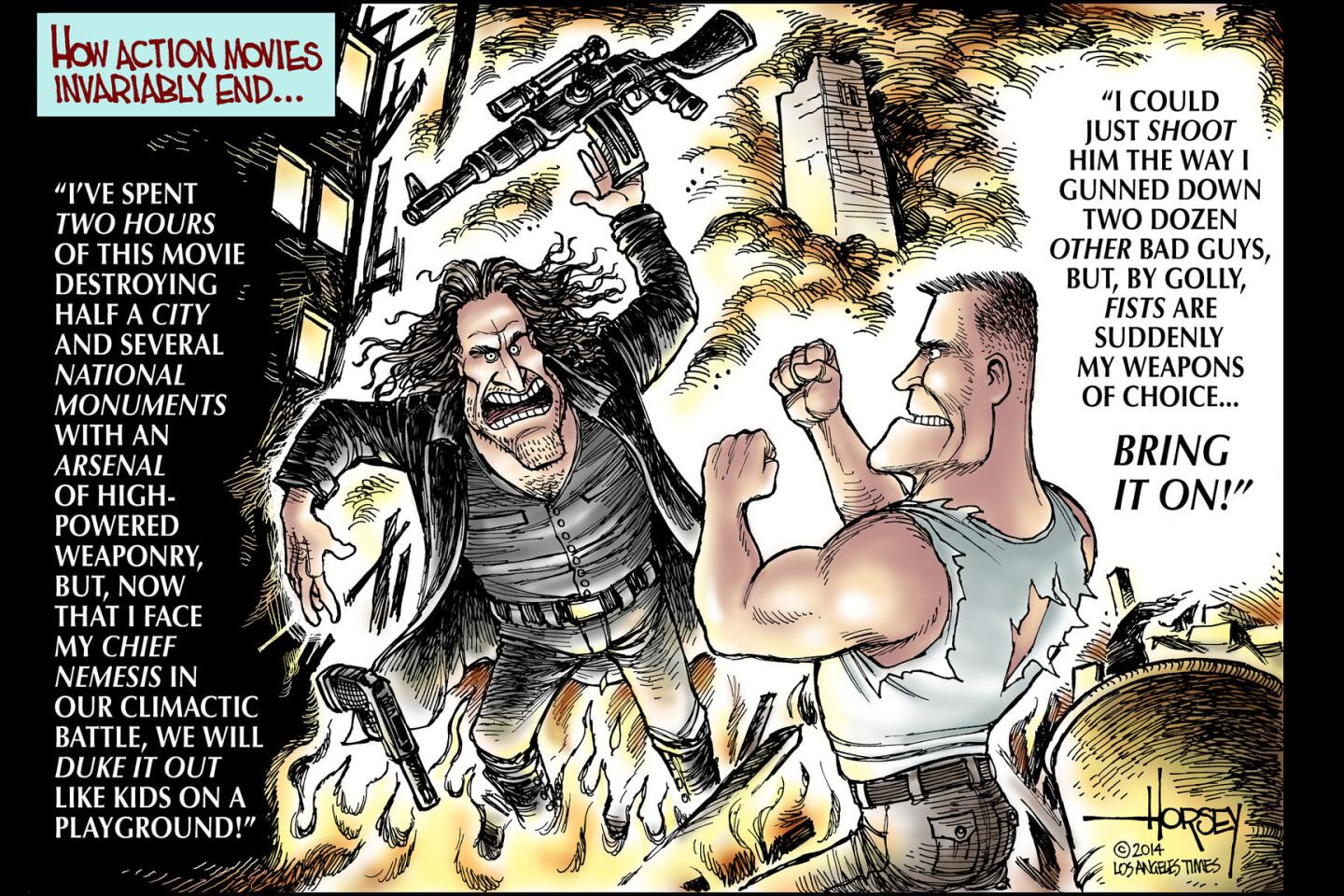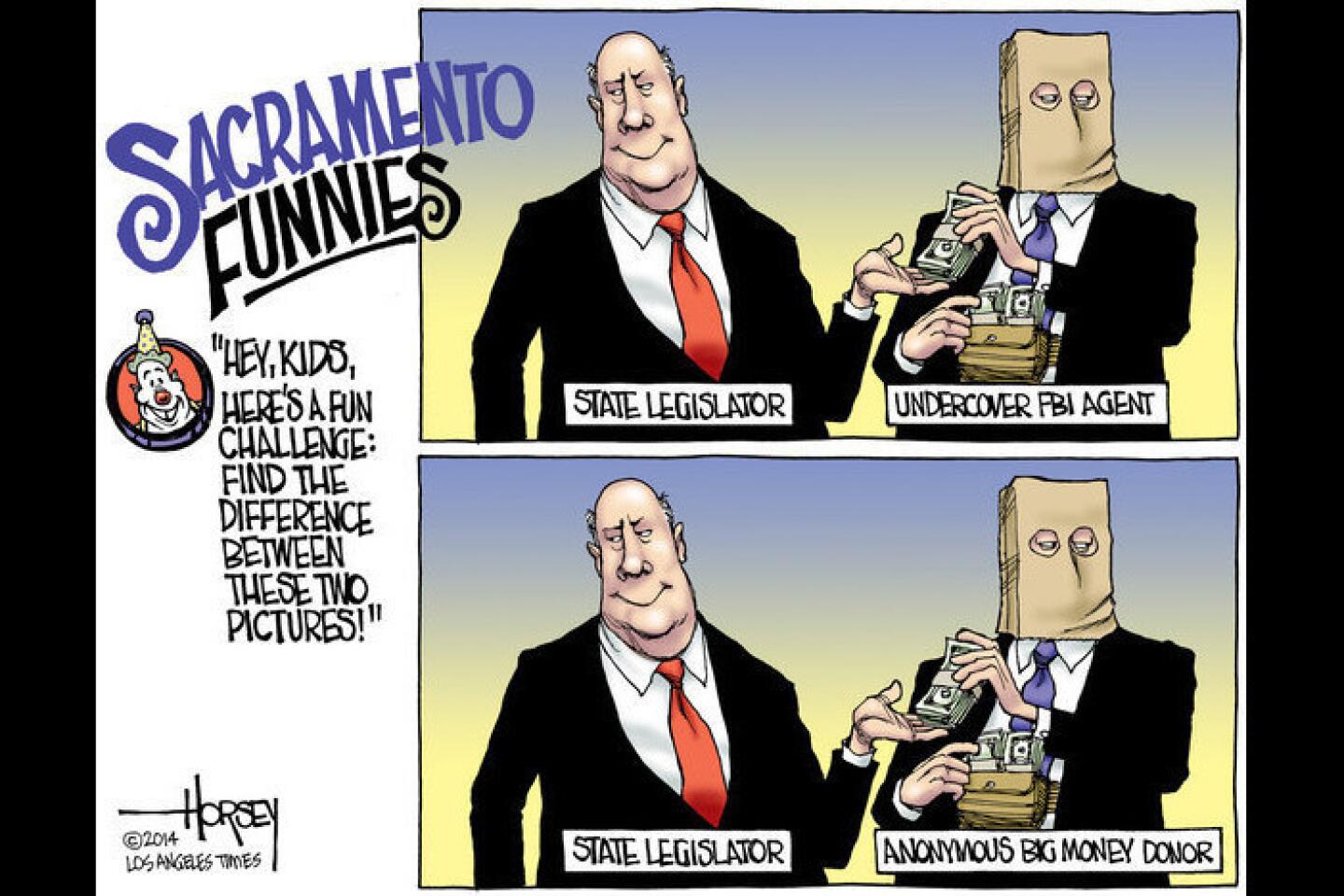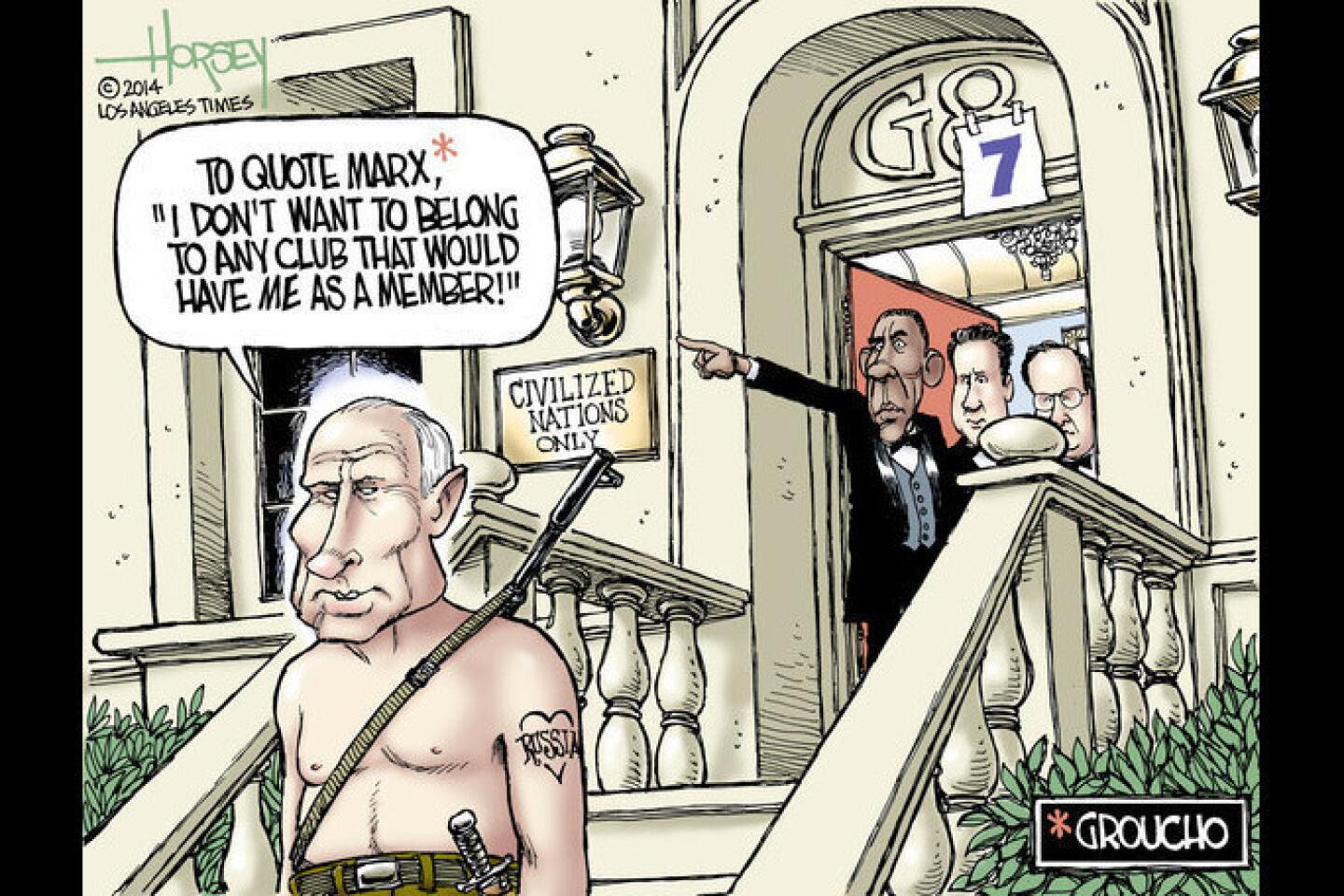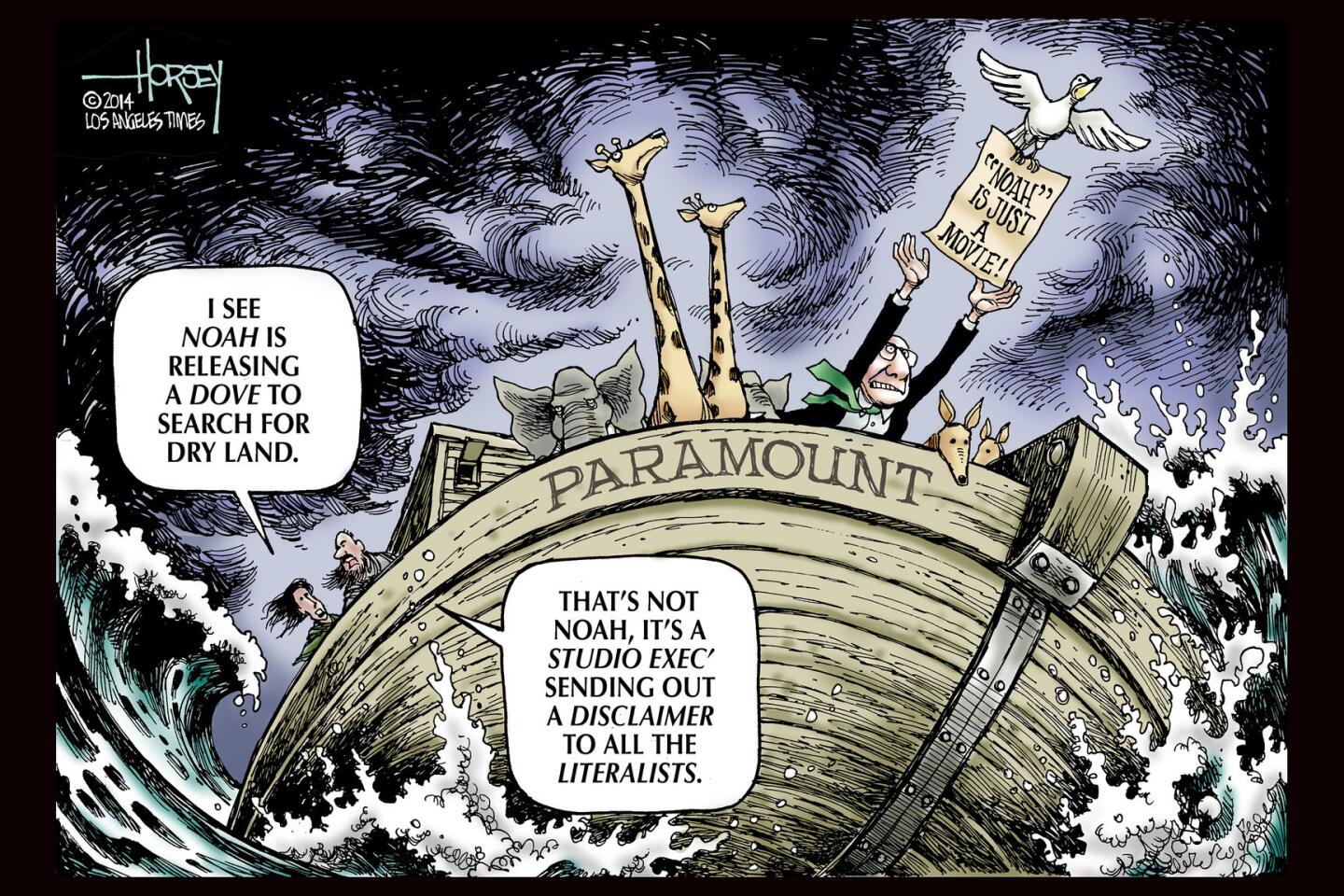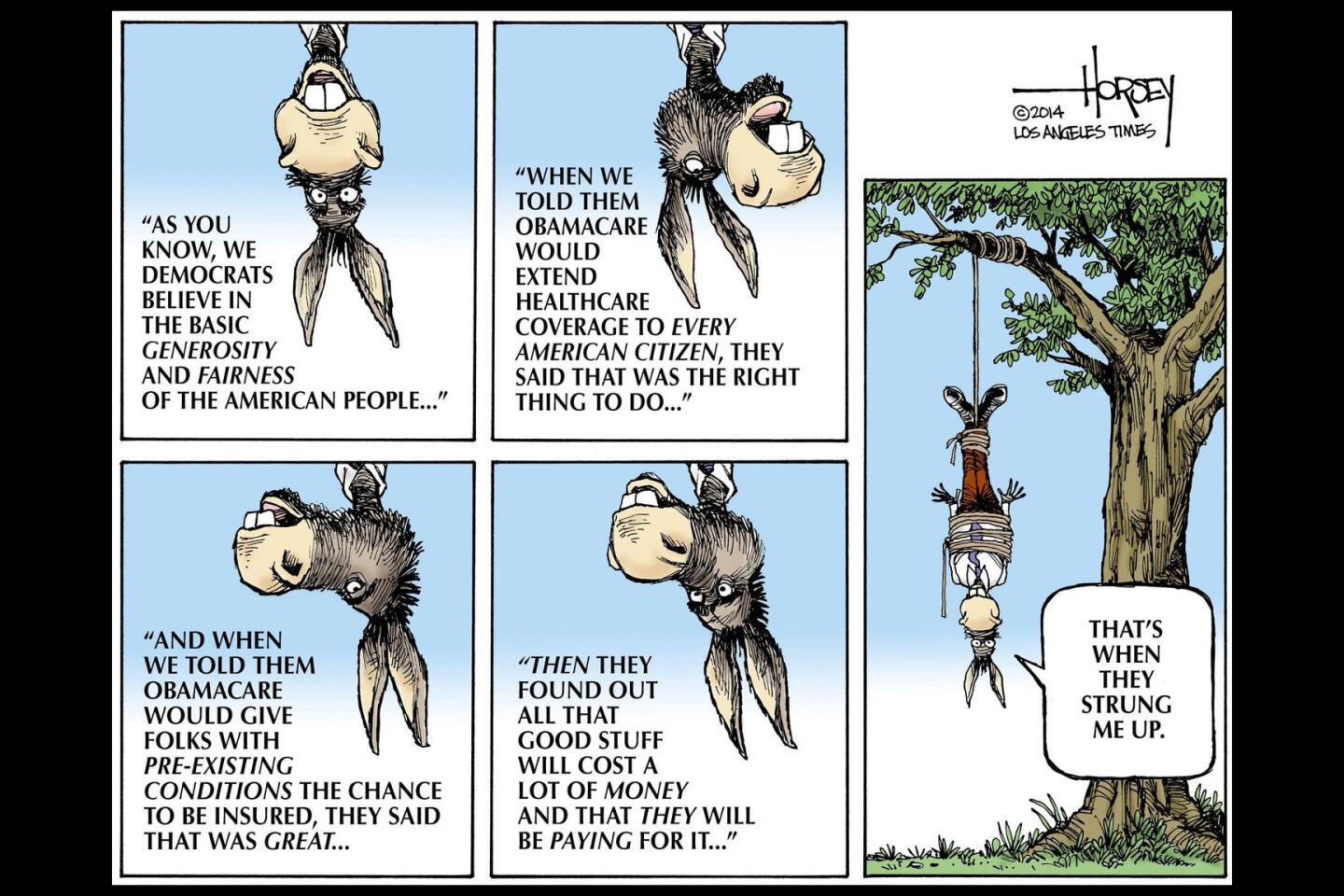Andrew Schneider: A real journalist in an era of fake news
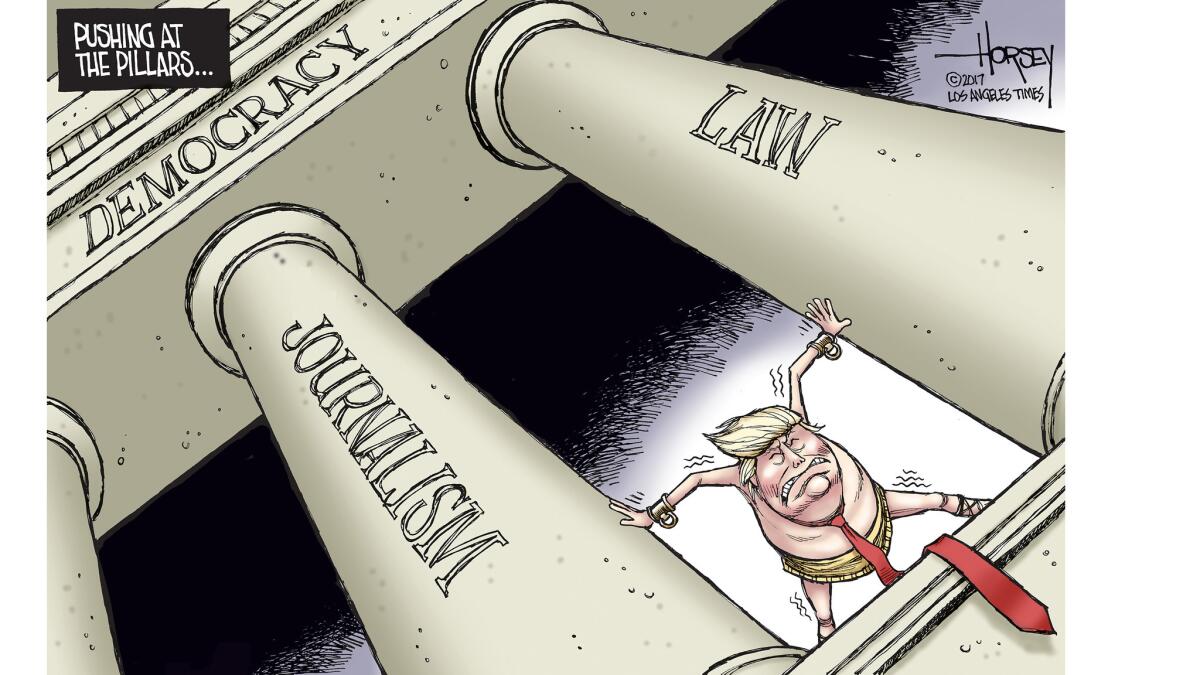
- Share via
Long before Donald Trump started employing a Stalinist locution, “enemies of the people,” to slander journalists, investigative reporter Andrew Schneider was considered a threat, if not an enemy, by inept bureaucrats, miserly corporate bosses, venal con men and abusers of political power. That’s because he spent a lifetime asking the questions and printing the answers that exposed many kinds of harm caused by the callousness and greed of the powerful.
On Saturday, I was in Seattle joining with former colleagues from the Seattle Post-Intelligencer and the Seattle Times to mourn Schneider’s death and celebrate his life. My purpose here is not to pay tribute to Schneider; his closest friends did an eloquent job of that on Saturday and another crew of colleagues will do the same at an upcoming memorial at the Newseum in Washington. What I want to do is describe Schneider’s exemplary journalism to Trump voters and Republicans who see the press as a politicized adversary, to folks on the left who fixate on the trope of the sold-out corporate media, and to people of any political persuasion — especially young Americans raised in the world of Twitter and Facebook — who may think news is just another form of gossip.
When any of you hear the word “journalist,” the image that comes to mind should not include the daffy morning trio on “Fox and Friends.” It should not be a ranting conspiracy theorist like Alex Jones. It should not be the panels of partisan advocates on CNN. It should not be a blogger who merely borrows information already revealed through the hard work of a diligent reporter.
The image in your mind should be of someone like Andy Schneider.
Schneider worked for news organizations in cities from Pittsburgh and Washington to Seattle and St. Louis. At the Pittsburgh Press, he won Pulitzers in 1986 and 1987. His first Pulitzer honored a globe-spanning story that exposed a system of greed and criminality that distorted the process of getting kidneys and other donated organs to patients in dire need of transplants. The second recognized Schneider’s investigation into the failure of airlines to prevent drugged or medically impaired pilots from flying.
Schneider’s long catalog of significant reporting also included stories about railroad companies allowing tracks and bridges to dangerously deteriorate without repairs or replacement; examples of the Red Cross putting fundraising ahead of disaster relief; fraudulent, bogus and underfunded insurance companies; children dying from abuse because of lax state oversight and enforcement; mining companies exploiting public lands and leaving taxpayers to pay cleanup costs for the environmental messes they left behind; and nursing home patients dying because corporate owners pumped up their profits by cutting staff and services.
There were two especially significant stories Schneider developed during the time we worked together at the Post-Intelligencer. One uncovered a miscarriage of justice perpetrated by overzealous police, prosecutors and mental health workers in a small Central Washington city. A group of adults had been sent to jail and families were torn apart by accusations of child sexual abuse. Schneider and his reporting partner, Mike Barber, dug into the story and revealed a modern day witch hunt that had snared innocent people who lacked the resources to defend themselves.
The other story — perhaps the biggest of Schneider’s career — began when he got wind of a disturbing pattern of deaths in the town of Libby, Mont. Schneider led a multi-year investigation that showed asbestos from a vermiculite mine had killed hundreds of the town’s residents and poisoned many more, even as the corporate owners of the mine ignored the dangers. When he died, Schneider was still investigating instances of harm caused by asbestos exposure in locales throughout the United States.
Schneider’s relentless reporting provided a forceful voice for people who lacked the resources or the knowledge to speak up for themselves. But he didn’t do it alone. Other reporters worked at his side. Good editors and publishers backed him up. Long-established journalistic standards guided him. He triple-checked information, got sources to go on the record and made sure every sentence of every story could be defended as fact. Andy Schneider was one of the best, but he was just one stellar reporter in a profession where a great many men and women dedicate their lives to uncovering information that saves lives and protects our democratic institutions.
Contrary to the vilifying comments spouted by the current occupant of the White House, professional journalists do not deal in fake news. They are not political partisans. They follow strict protocols that demand accuracy and require quick admission of errors. They are not enemies of the people, they are defenders of the powerless.
Trump’s senior political advisor, Stephen Bannon, has said the news media is the administration’s real opposition and, for once, he is right. Reporters are, and will continue to be, Trump’s most annoying antagonists whenever he spreads falsehoods to further his personal interests and whenever the people who speak on his behalf respond to straightforward questions with bizarre evasions while insisting their “alternative facts” are equal to verifiable truth.
Bannon has told the media to simply shut up. Whether you are a conservative or a liberal, a tea party activist or a Bernie Bro, you do not want that to happen. You want tough questions asked, you want hard facts to triumph over manipulative mendacity and you want investigative reporters like Andrew Schneider to expose the depredations of the greedy and to call out abusers of power from the lowliest county sheriff to the highest office in the land.
Why do you want this? Because without that kind of journalism, a free society is impossible. The day there are no more Andy Schneiders — or those who aspire to be like him — will be the day American democracy ends.
Follow me at @davidhorsey on Twitter
A cure for the common opinion
Get thought-provoking perspectives with our weekly newsletter.
You may occasionally receive promotional content from the Los Angeles Times.
